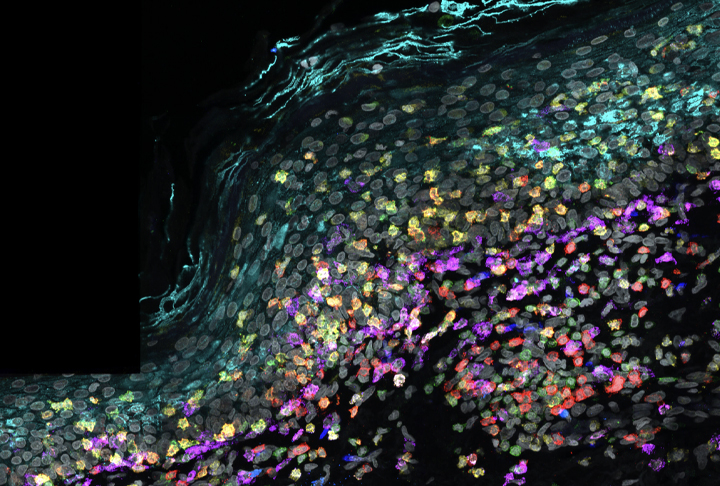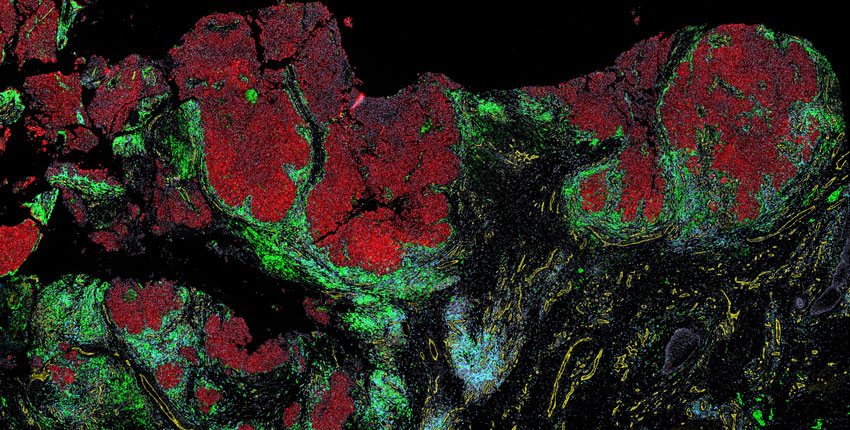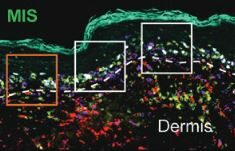Related Publications
2576724
IXMHRBF6
skin cancer
1
apa-cv
50
date
desc
1
1
4131
https://labsyspharm.org/wp-content/plugins/zotpress/
%7B%22status%22%3A%22success%22%2C%22updateneeded%22%3Afalse%2C%22instance%22%3Afalse%2C%22meta%22%3A%7B%22request_last%22%3A0%2C%22request_next%22%3A0%2C%22used_cache%22%3Atrue%7D%2C%22data%22%3A%5B%7B%22key%22%3A%22I8KVERLL%22%2C%22library%22%3A%7B%22id%22%3A2576724%7D%2C%22meta%22%3A%7B%22lastModifiedByUser%22%3A%7B%22id%22%3A5018704%2C%22username%22%3A%22AlyceChen%22%2C%22name%22%3A%22Alyce%20A%20Chen%22%2C%22links%22%3A%7B%22alternate%22%3A%7B%22href%22%3A%22https%3A%5C%2F%5C%2Fwww.zotero.org%5C%2Falycechen%22%2C%22type%22%3A%22text%5C%2Fhtml%22%7D%7D%7D%2C%22creatorSummary%22%3A%22Fang%20et%20al.%22%2C%22parsedDate%22%3A%222025-02-28%22%2C%22numChildren%22%3A2%7D%2C%22bib%22%3A%22%3Cdiv%20class%3D%5C%22csl-bib-body%5C%22%20style%3D%5C%22line-height%3A%202%3B%20padding-left%3A%201em%3B%20text-indent%3A-1em%3B%5C%22%3E%5Cn%20%20%3Cdiv%20class%3D%5C%22csl-entry%5C%22%3EFang%2C%20R.%2C%20Vallius%2C%20T.%2C%20Zhang%2C%20A.%2C%20Van%20Cura%2C%20D.%2C%20Alicandri%2C%20F.%2C%20Fischer%2C%20G.%2C%20Draper%2C%20E.%2C%20Xu%2C%20S.%2C%20Pelletier%2C%20R.%2C%20Wang%2C%20J.%2C%20Mandinova%2C%20A.%2C%20Katsyv%2C%20I.%2C%20Sorger%2C%20P.%20K.%2C%20Murphy%2C%20G.%20F.%2C%20%26amp%3B%20Lian%2C%20C.%20G.%20%282025%29.%20PRAME%20expression%20in%20melanoma%20is%20negatively%20regulated%20by%20TET2-mediated%20DNA%20hydroxymethylation.%20%3Ci%3ELaboratory%20Investigation%3B%20a%20Journal%20of%20Technical%20Methods%20and%20Pathology%3C%5C%2Fi%3E%2C%20104123.%20%3Ca%20class%3D%27zp-DOIURL%27%20target%3D%27_blank%27%20href%3D%27https%3A%5C%2F%5C%2Fdoi.org%5C%2F10.1016%5C%2Fj.labinv.2025.104123%27%3Ehttps%3A%5C%2F%5C%2Fdoi.org%5C%2F10.1016%5C%2Fj.labinv.2025.104123%3C%5C%2Fa%3E%3C%5C%2Fdiv%3E%5Cn%3C%5C%2Fdiv%3E%22%2C%22data%22%3A%7B%22itemType%22%3A%22journalArticle%22%2C%22title%22%3A%22PRAME%20expression%20in%20melanoma%20is%20negatively%20regulated%20by%20TET2-mediated%20DNA%20hydroxymethylation%22%2C%22creators%22%3A%5B%7B%22creatorType%22%3A%22author%22%2C%22firstName%22%3A%22Rui%22%2C%22lastName%22%3A%22Fang%22%7D%2C%7B%22creatorType%22%3A%22author%22%2C%22firstName%22%3A%22Tuulia%22%2C%22lastName%22%3A%22Vallius%22%7D%2C%7B%22creatorType%22%3A%22author%22%2C%22firstName%22%3A%22Arianna%22%2C%22lastName%22%3A%22Zhang%22%7D%2C%7B%22creatorType%22%3A%22author%22%2C%22firstName%22%3A%22Devon%22%2C%22lastName%22%3A%22Van%20Cura%22%7D%2C%7B%22creatorType%22%3A%22author%22%2C%22firstName%22%3A%22Francisco%22%2C%22lastName%22%3A%22Alicandri%22%7D%2C%7B%22creatorType%22%3A%22author%22%2C%22firstName%22%3A%22Grant%22%2C%22lastName%22%3A%22Fischer%22%7D%2C%7B%22creatorType%22%3A%22author%22%2C%22firstName%22%3A%22Elizabeth%22%2C%22lastName%22%3A%22Draper%22%7D%2C%7B%22creatorType%22%3A%22author%22%2C%22firstName%22%3A%22Shuyun%22%2C%22lastName%22%3A%22Xu%22%7D%2C%7B%22creatorType%22%3A%22author%22%2C%22firstName%22%3A%22Roxanne%22%2C%22lastName%22%3A%22Pelletier%22%7D%2C%7B%22creatorType%22%3A%22author%22%2C%22firstName%22%3A%22Justina%22%2C%22lastName%22%3A%22Wang%22%7D%2C%7B%22creatorType%22%3A%22author%22%2C%22firstName%22%3A%22Anna%22%2C%22lastName%22%3A%22Mandinova%22%7D%2C%7B%22creatorType%22%3A%22author%22%2C%22firstName%22%3A%22Igor%22%2C%22lastName%22%3A%22Katsyv%22%7D%2C%7B%22creatorType%22%3A%22author%22%2C%22firstName%22%3A%22Peter%20K.%22%2C%22lastName%22%3A%22Sorger%22%7D%2C%7B%22creatorType%22%3A%22author%22%2C%22firstName%22%3A%22George%20F.%22%2C%22lastName%22%3A%22Murphy%22%7D%2C%7B%22creatorType%22%3A%22author%22%2C%22firstName%22%3A%22Christine%20G.%22%2C%22lastName%22%3A%22Lian%22%7D%5D%2C%22abstractNote%22%3A%22Preferentially%20Expressed%20Antigen%20in%20Melanoma%20%28PRAME%29%20and%20Ten-Eleven%20Translocation%20%28TET%29%20dioxygenase-mediated%205-hydroxymethylcytosine%20%285hmC%29%20are%20emerging%20melanoma%20biomarkers.%20We%20observed%20an%20inverse%20correlation%20between%20PRAME%20expression%20and%205hmC%20levels%20in%20benign%20nevi%2C%20melanoma%20in%20situ%2C%20primary%20invasive%20melanoma%2C%20and%20metastatic%20melanomas%20via%20immunohistochemistry%20and%20multiplex%20immunofluorescence%3A%20nevi%20exhibited%20high%205hmC%20and%20low%20PRAME%2C%20whereas%20melanomas%20showed%20the%20opposite%20pattern.%20Single-cell%20multiplex%20imaging%20of%20melanoma%20precursors%20revealed%20that%20diminished%205hmC%20coincides%20with%20PRAME%20upregulation%20in%20premalignant%20cells.%20Analysis%20of%20TCGA%20and%20GTEx%20databases%20confirmed%20a%20negative%20relationship%20between%20TET2%20and%20PRAME%20mRNA%20expression%20in%20melanoma.%20Additionally%2C%205hmC%20levels%20were%20reduced%20at%20the%20PRAME%205%27%20promoter%20in%20melanoma%20compared%20to%20nevi%2C%20suggesting%20a%20role%20for%205hmC%20in%20PRAME%20transcription.%20Restoring%205hmC%20levels%20via%20TET2%20overexpression%20notably%20reduced%20PRAME%20expression%20in%20melanoma%20cell%20lines.%20These%20findings%20establish%20a%20function%20of%20TET2-mediated%20DNA%20hydroxymethylation%20in%20regulating%20PRAME%20expression%20and%20demonstrate%20epigenetic%20reprogramming%20as%20pivotal%20in%20melanoma%20tumorigenesis.%22%2C%22date%22%3A%222025-02-28%22%2C%22language%22%3A%22eng%22%2C%22DOI%22%3A%2210.1016%5C%2Fj.labinv.2025.104123%22%2C%22ISSN%22%3A%221530-0307%22%2C%22url%22%3A%22%22%2C%22collections%22%3A%5B%22IXMHRBF6%22%5D%2C%22dateModified%22%3A%222025-04-07T22%3A28%3A18Z%22%7D%7D%2C%7B%22key%22%3A%22QLUV5UXC%22%2C%22library%22%3A%7B%22id%22%3A2576724%7D%2C%22meta%22%3A%7B%22creatorSummary%22%3A%22Oka%20et%20al.%22%2C%22parsedDate%22%3A%222025-01%22%2C%22numChildren%22%3A1%7D%2C%22bib%22%3A%22%3Cdiv%20class%3D%5C%22csl-bib-body%5C%22%20style%3D%5C%22line-height%3A%202%3B%20padding-left%3A%201em%3B%20text-indent%3A-1em%3B%5C%22%3E%5Cn%20%20%3Cdiv%20class%3D%5C%22csl-entry%5C%22%3EOka%2C%20T.%2C%20Hasegawa%2C%20T.%2C%20Lee%2C%20T.%2C%20Oliver-Garcia%2C%20V.%20S.%2C%20Mortaja%2C%20M.%2C%20Azin%2C%20M.%2C%20Horiba%2C%20S.%2C%20Smith%2C%20S.%20S.%2C%20Khattab%2C%20S.%2C%20Trerice%2C%20K.%20E.%2C%20Chen%2C%20S.%20T.%2C%20Semenov%2C%20Y.%20R.%2C%20%26amp%3B%20Demehri%2C%20S.%20%282025%29.%20Langerhans%20Cells%20Directly%20Interact%20with%20Resident%20T%20Cells%20in%20the%20Human%20Epidermis.%20%3Ci%3EJID%20Innovations%3A%20Skin%20Science%20from%20Molecules%20to%20Population%20Health%3C%5C%2Fi%3E%2C%20%3Ci%3E5%3C%5C%2Fi%3E%281%29%2C%20100324.%20%3Ca%20class%3D%27zp-DOIURL%27%20target%3D%27_blank%27%20href%3D%27https%3A%5C%2F%5C%2Fdoi.org%5C%2F10.1016%5C%2Fj.xjidi.2024.100324%27%3Ehttps%3A%5C%2F%5C%2Fdoi.org%5C%2F10.1016%5C%2Fj.xjidi.2024.100324%3C%5C%2Fa%3E%3C%5C%2Fdiv%3E%5Cn%3C%5C%2Fdiv%3E%22%2C%22data%22%3A%7B%22itemType%22%3A%22journalArticle%22%2C%22title%22%3A%22Langerhans%20Cells%20Directly%20Interact%20with%20Resident%20T%20Cells%20in%20the%20Human%20Epidermis%22%2C%22creators%22%3A%5B%7B%22creatorType%22%3A%22author%22%2C%22firstName%22%3A%22Tomonori%22%2C%22lastName%22%3A%22Oka%22%7D%2C%7B%22creatorType%22%3A%22author%22%2C%22firstName%22%3A%22Tatsuya%22%2C%22lastName%22%3A%22Hasegawa%22%7D%2C%7B%22creatorType%22%3A%22author%22%2C%22firstName%22%3A%22Truelian%22%2C%22lastName%22%3A%22Lee%22%7D%2C%7B%22creatorType%22%3A%22author%22%2C%22firstName%22%3A%22Valeria%20S.%22%2C%22lastName%22%3A%22Oliver-Garcia%22%7D%2C%7B%22creatorType%22%3A%22author%22%2C%22firstName%22%3A%22Mahsa%22%2C%22lastName%22%3A%22Mortaja%22%7D%2C%7B%22creatorType%22%3A%22author%22%2C%22firstName%22%3A%22Marjan%22%2C%22lastName%22%3A%22Azin%22%7D%2C%7B%22creatorType%22%3A%22author%22%2C%22firstName%22%3A%22Satoshi%22%2C%22lastName%22%3A%22Horiba%22%7D%2C%7B%22creatorType%22%3A%22author%22%2C%22firstName%22%3A%22Sabrina%20S.%22%2C%22lastName%22%3A%22Smith%22%7D%2C%7B%22creatorType%22%3A%22author%22%2C%22firstName%22%3A%22Sara%22%2C%22lastName%22%3A%22Khattab%22%7D%2C%7B%22creatorType%22%3A%22author%22%2C%22firstName%22%3A%22Kathryn%20E.%22%2C%22lastName%22%3A%22Trerice%22%7D%2C%7B%22creatorType%22%3A%22author%22%2C%22firstName%22%3A%22Steven%20T.%22%2C%22lastName%22%3A%22Chen%22%7D%2C%7B%22creatorType%22%3A%22author%22%2C%22firstName%22%3A%22Yevgeniy%20R.%22%2C%22lastName%22%3A%22Semenov%22%7D%2C%7B%22creatorType%22%3A%22author%22%2C%22firstName%22%3A%22Shadmehr%22%2C%22lastName%22%3A%22Demehri%22%7D%5D%2C%22abstractNote%22%3A%22Adult%20human%20skin%20contains%20nearly%20twice%20as%20many%20T%20cells%20as%20the%20peripheral%20blood%2C%20which%20include%20tissue-resident%20memory%20T%20cells.%20However%2C%20the%20precise%20mechanisms%20maintaining%20tissue-resident%20memory%20T%20cells%20in%20the%20healthy%20skin%20remain%20unclear.%20Using%20normal%20human%20skin%20samples%2C%20we%20find%20that%20Langerhans%20cells%20%28LCs%29%20contact%20T%20cells%20in%20the%20epidermis%20of%20the%20elderly.%20LCs%20with%20high%20HLA-II%2C%20CD86%2C%20and%20PD-L2%20expression%20directly%20contacted%20PD-1%2B%20tissue-resident%20memory%20T%20cells%20and%20CTLA-4%2B%20regulatory%20T%20cells%20in%20the%20epidermis%2C%20indicating%20an%20axis%20of%20peripheral%20tolerance%20in%20a%20steady%20state.%20Environmental%20insults%2C%20UVB%20radiation%2C%20and%20hapten%20downregulated%20HLA-II%20and%20CD86%20on%20LCs%20in%20the%20epidermis%2C%20suggesting%20that%20disruption%20of%20LC-T%20cell%20tolerogenic%20axis%20contributes%20to%20skin%20inflammation.%20Interestingly%2C%20immune%20checkpoint%20blockade%20therapy%20was%20associated%20with%20decreased%20epidermal%20LC-T%20cell%20contact%20in%20the%20normal%20skin%20of%20patients%20with%20cancer%20affected%20by%20cutaneous%20immune-related%20adverse%20events.%20Collectively%2C%20our%20findings%20indicate%20that%20LCs%20may%20contribute%20to%20T%20cell%20tolerance%20in%20the%20epidermis.%22%2C%22date%22%3A%222025-01%22%2C%22language%22%3A%22eng%22%2C%22DOI%22%3A%2210.1016%5C%2Fj.xjidi.2024.100324%22%2C%22ISSN%22%3A%222667-0267%22%2C%22url%22%3A%22%22%2C%22collections%22%3A%5B%22IXMHRBF6%22%5D%2C%22dateModified%22%3A%222025-02-11T14%3A04%3A22Z%22%7D%7D%2C%7B%22key%22%3A%22B3WD6BW5%22%2C%22library%22%3A%7B%22id%22%3A2576724%7D%2C%22meta%22%3A%7B%22lastModifiedByUser%22%3A%7B%22id%22%3A9036456%2C%22username%22%3A%22jtefft%22%2C%22name%22%3A%22%22%2C%22links%22%3A%7B%22alternate%22%3A%7B%22href%22%3A%22https%3A%5C%2F%5C%2Fwww.zotero.org%5C%2Fjtefft%22%2C%22type%22%3A%22text%5C%2Fhtml%22%7D%7D%7D%2C%22creatorSummary%22%3A%22Rogava%20et%20al.%22%2C%22parsedDate%22%3A%222024-01-29%22%2C%22numChildren%22%3A1%7D%2C%22bib%22%3A%22%3Cdiv%20class%3D%5C%22csl-bib-body%5C%22%20style%3D%5C%22line-height%3A%202%3B%20padding-left%3A%201em%3B%20text-indent%3A-1em%3B%5C%22%3E%5Cn%20%20%3Cdiv%20class%3D%5C%22csl-entry%5C%22%3ERogava%2C%20M.%2C%20Aprati%2C%20T.%20J.%2C%20Chi%2C%20W.-Y.%2C%20Melms%2C%20J.%20C.%2C%20Hug%2C%20C.%2C%20Davis%2C%20S.%20H.%2C%20Earlie%2C%20E.%20M.%2C%20Chung%2C%20C.%2C%20Deshmukh%2C%20S.%20K.%2C%20Wu%2C%20S.%2C%20Sledge%2C%20G.%2C%20Tang%2C%20S.%2C%20Ho%2C%20P.%2C%20Amin%2C%20A.%20D.%2C%20Caprio%2C%20L.%2C%20Gurjao%2C%20C.%2C%20Tagore%2C%20S.%2C%20Ngo%2C%20B.%2C%20Lee%2C%20M.%20J.%2C%20%26%23x2026%3B%20Izar%2C%20B.%20%282024%29.%20Loss%20of%20Pip4k2c%20confers%20liver-metastatic%20organotropism%20through%20insulin-dependent%20PI3K-AKT%20pathway%20activation.%20%3Ci%3ENature%20Cancer%3C%5C%2Fi%3E.%20%3Ca%20class%3D%27zp-DOIURL%27%20target%3D%27_blank%27%20href%3D%27https%3A%5C%2F%5C%2Fdoi.org%5C%2F10.1038%5C%2Fs43018-023-00704-x%27%3Ehttps%3A%5C%2F%5C%2Fdoi.org%5C%2F10.1038%5C%2Fs43018-023-00704-x%3C%5C%2Fa%3E%3C%5C%2Fdiv%3E%5Cn%3C%5C%2Fdiv%3E%22%2C%22data%22%3A%7B%22itemType%22%3A%22journalArticle%22%2C%22title%22%3A%22Loss%20of%20Pip4k2c%20confers%20liver-metastatic%20organotropism%20through%20insulin-dependent%20PI3K-AKT%20pathway%20activation%22%2C%22creators%22%3A%5B%7B%22creatorType%22%3A%22author%22%2C%22firstName%22%3A%22Meri%22%2C%22lastName%22%3A%22Rogava%22%7D%2C%7B%22creatorType%22%3A%22author%22%2C%22firstName%22%3A%22Tyler%20J.%22%2C%22lastName%22%3A%22Aprati%22%7D%2C%7B%22creatorType%22%3A%22author%22%2C%22firstName%22%3A%22Wei-Yu%22%2C%22lastName%22%3A%22Chi%22%7D%2C%7B%22creatorType%22%3A%22author%22%2C%22firstName%22%3A%22Johannes%20C.%22%2C%22lastName%22%3A%22Melms%22%7D%2C%7B%22creatorType%22%3A%22author%22%2C%22firstName%22%3A%22Clemens%22%2C%22lastName%22%3A%22Hug%22%7D%2C%7B%22creatorType%22%3A%22author%22%2C%22firstName%22%3A%22Stephanie%20H.%22%2C%22lastName%22%3A%22Davis%22%7D%2C%7B%22creatorType%22%3A%22author%22%2C%22firstName%22%3A%22Ethan%20M.%22%2C%22lastName%22%3A%22Earlie%22%7D%2C%7B%22creatorType%22%3A%22author%22%2C%22firstName%22%3A%22Charlie%22%2C%22lastName%22%3A%22Chung%22%7D%2C%7B%22creatorType%22%3A%22author%22%2C%22firstName%22%3A%22Sachin%20K.%22%2C%22lastName%22%3A%22Deshmukh%22%7D%2C%7B%22creatorType%22%3A%22author%22%2C%22firstName%22%3A%22Sharon%22%2C%22lastName%22%3A%22Wu%22%7D%2C%7B%22creatorType%22%3A%22author%22%2C%22firstName%22%3A%22George%22%2C%22lastName%22%3A%22Sledge%22%7D%2C%7B%22creatorType%22%3A%22author%22%2C%22firstName%22%3A%22Stephen%22%2C%22lastName%22%3A%22Tang%22%7D%2C%7B%22creatorType%22%3A%22author%22%2C%22firstName%22%3A%22Patricia%22%2C%22lastName%22%3A%22Ho%22%7D%2C%7B%22creatorType%22%3A%22author%22%2C%22firstName%22%3A%22Amit%20Dipak%22%2C%22lastName%22%3A%22Amin%22%7D%2C%7B%22creatorType%22%3A%22author%22%2C%22firstName%22%3A%22Lindsay%22%2C%22lastName%22%3A%22Caprio%22%7D%2C%7B%22creatorType%22%3A%22author%22%2C%22firstName%22%3A%22Carino%22%2C%22lastName%22%3A%22Gurjao%22%7D%2C%7B%22creatorType%22%3A%22author%22%2C%22firstName%22%3A%22Somnath%22%2C%22lastName%22%3A%22Tagore%22%7D%2C%7B%22creatorType%22%3A%22author%22%2C%22firstName%22%3A%22Bryan%22%2C%22lastName%22%3A%22Ngo%22%7D%2C%7B%22creatorType%22%3A%22author%22%2C%22firstName%22%3A%22Michael%20J.%22%2C%22lastName%22%3A%22Lee%22%7D%2C%7B%22creatorType%22%3A%22author%22%2C%22firstName%22%3A%22Giorgia%22%2C%22lastName%22%3A%22Zanetti%22%7D%2C%7B%22creatorType%22%3A%22author%22%2C%22firstName%22%3A%22Yiping%22%2C%22lastName%22%3A%22Wang%22%7D%2C%7B%22creatorType%22%3A%22author%22%2C%22firstName%22%3A%22Sean%22%2C%22lastName%22%3A%22Chen%22%7D%2C%7B%22creatorType%22%3A%22author%22%2C%22firstName%22%3A%22William%22%2C%22lastName%22%3A%22Ge%22%7D%2C%7B%22creatorType%22%3A%22author%22%2C%22firstName%22%3A%22Luiza%20Martins%20Nascentes%22%2C%22lastName%22%3A%22Melo%22%7D%2C%7B%22creatorType%22%3A%22author%22%2C%22firstName%22%3A%22Gabriele%22%2C%22lastName%22%3A%22Allies%22%7D%2C%7B%22creatorType%22%3A%22author%22%2C%22firstName%22%3A%22Jonas%22%2C%22lastName%22%3A%22R%5Cu00f6sler%22%7D%2C%7B%22creatorType%22%3A%22author%22%2C%22firstName%22%3A%22Goeffrey%20T.%22%2C%22lastName%22%3A%22Gibney%22%7D%2C%7B%22creatorType%22%3A%22author%22%2C%22firstName%22%3A%22Oliver%20J.%22%2C%22lastName%22%3A%22Schmitz%22%7D%2C%7B%22creatorType%22%3A%22author%22%2C%22firstName%22%3A%22Megan%22%2C%22lastName%22%3A%22Sykes%22%7D%2C%7B%22creatorType%22%3A%22author%22%2C%22firstName%22%3A%22R%5Cu00e9mi%20J.%22%2C%22lastName%22%3A%22Creusot%22%7D%2C%7B%22creatorType%22%3A%22author%22%2C%22firstName%22%3A%22Thomas%22%2C%22lastName%22%3A%22T%5Cu00fcting%22%7D%2C%7B%22creatorType%22%3A%22author%22%2C%22firstName%22%3A%22Dirk%22%2C%22lastName%22%3A%22Schadendorf%22%7D%2C%7B%22creatorType%22%3A%22author%22%2C%22firstName%22%3A%22Martin%22%2C%22lastName%22%3A%22R%5Cu00f6cken%22%7D%2C%7B%22creatorType%22%3A%22author%22%2C%22firstName%22%3A%22Thomas%20K.%22%2C%22lastName%22%3A%22Eigentler%22%7D%2C%7B%22creatorType%22%3A%22author%22%2C%22firstName%22%3A%22Andrei%22%2C%22lastName%22%3A%22Molotkov%22%7D%2C%7B%22creatorType%22%3A%22author%22%2C%22firstName%22%3A%22Akiva%22%2C%22lastName%22%3A%22Mintz%22%7D%2C%7B%22creatorType%22%3A%22author%22%2C%22firstName%22%3A%22Samuel%20F.%22%2C%22lastName%22%3A%22Bakhoum%22%7D%2C%7B%22creatorType%22%3A%22author%22%2C%22firstName%22%3A%22Semir%22%2C%22lastName%22%3A%22Beyaz%22%7D%2C%7B%22creatorType%22%3A%22author%22%2C%22firstName%22%3A%22Lewis%20C.%22%2C%22lastName%22%3A%22Cantley%22%7D%2C%7B%22creatorType%22%3A%22author%22%2C%22firstName%22%3A%22Peter%20K.%22%2C%22lastName%22%3A%22Sorger%22%7D%2C%7B%22creatorType%22%3A%22author%22%2C%22firstName%22%3A%22Sven%20W.%22%2C%22lastName%22%3A%22Meckelmann%22%7D%2C%7B%22creatorType%22%3A%22author%22%2C%22firstName%22%3A%22Alpaslan%22%2C%22lastName%22%3A%22Tasdogan%22%7D%2C%7B%22creatorType%22%3A%22author%22%2C%22firstName%22%3A%22David%22%2C%22lastName%22%3A%22Liu%22%7D%2C%7B%22creatorType%22%3A%22author%22%2C%22firstName%22%3A%22Ashley%20M.%22%2C%22lastName%22%3A%22Laughney%22%7D%2C%7B%22creatorType%22%3A%22author%22%2C%22firstName%22%3A%22Benjamin%22%2C%22lastName%22%3A%22Izar%22%7D%5D%2C%22abstractNote%22%3A%22Liver%20metastasis%20%28LM%29%20confers%20poor%20survival%20and%20therapy%20resistance%20across%20cancer%20types%2C%20but%20the%20mechanisms%20of%20liver-metastatic%20organotropism%20remain%20unknown.%20Here%2C%20through%20in%20vivo%20CRISPR-Cas9%20screens%2C%20we%20found%20that%20Pip4k2c%20loss%20conferred%20LM%20but%20had%20no%20impact%20on%20lung%20metastasis%20or%20primary%20tumor%20growth.%20Pip4k2c-deficient%20cells%20were%20hypersensitized%20to%20insulin-mediated%20PI3K%5C%2FAKT%20signaling%20and%20exploited%20the%20insulin-rich%20liver%20milieu%20for%20organ-specific%20metastasis.%20We%20observed%20concordant%20changes%20in%20PIP4K2C%20expression%20and%20distinct%20metabolic%20changes%20in%203%2C511%20patient%20melanomas%2C%20including%20primary%20tumors%2C%20LMs%20and%20lung%20metastases.%20We%20found%20that%20systemic%20PI3K%20inhibition%20exacerbated%20LM%20burden%20in%20mice%20injected%20with%20Pip4k2c-deficient%20cancer%20cells%20through%20host-mediated%20increase%20in%20hepatic%20insulin%20levels%3B%20however%2C%20this%20circuit%20could%20be%20broken%20by%20concurrent%20administration%20of%20an%20SGLT2%20inhibitor%20or%20feeding%20of%20a%20ketogenic%20diet.%20Thus%2C%20this%20work%20demonstrates%20a%20rare%20example%20of%20metastatic%20organotropism%20through%20co-optation%20of%20physiological%20metabolic%20cues%20and%20proposes%20therapeutic%20avenues%20to%20counteract%20these%20mechanisms.%22%2C%22date%22%3A%222024-01-29%22%2C%22language%22%3A%22eng%22%2C%22DOI%22%3A%2210.1038%5C%2Fs43018-023-00704-x%22%2C%22ISSN%22%3A%222662-1347%22%2C%22url%22%3A%22%22%2C%22collections%22%3A%5B%22IXMHRBF6%22%5D%2C%22dateModified%22%3A%222025-01-29T10%3A35%3A38Z%22%7D%7D%2C%7B%22key%22%3A%22B9LJZ4QE%22%2C%22library%22%3A%7B%22id%22%3A2576724%7D%2C%22meta%22%3A%7B%22lastModifiedByUser%22%3A%7B%22id%22%3A9036456%2C%22username%22%3A%22jtefft%22%2C%22name%22%3A%22%22%2C%22links%22%3A%7B%22alternate%22%3A%7B%22href%22%3A%22https%3A%5C%2F%5C%2Fwww.zotero.org%5C%2Fjtefft%22%2C%22type%22%3A%22text%5C%2Fhtml%22%7D%7D%7D%2C%22creatorSummary%22%3A%22Zhang%20et%20al.%22%2C%22parsedDate%22%3A%222024-01-20%22%2C%22numChildren%22%3A2%7D%2C%22bib%22%3A%22%3Cdiv%20class%3D%5C%22csl-bib-body%5C%22%20style%3D%5C%22line-height%3A%202%3B%20padding-left%3A%201em%3B%20text-indent%3A-1em%3B%5C%22%3E%5Cn%20%20%3Cdiv%20class%3D%5C%22csl-entry%5C%22%3EZhang%2C%20X.%2C%20Pant%2C%20S.%20M.%2C%20Ritch%2C%20C.%20C.%2C%20Tang%2C%20H.-Y.%2C%20Shao%2C%20H.%2C%20Dweep%2C%20H.%2C%20Gong%2C%20Y.-Y.%2C%20Brooks%2C%20R.%2C%20Brafford%2C%20P.%2C%20Wolpaw%2C%20A.%20J.%2C%20Lee%2C%20Y.%2C%20Weeraratna%2C%20A.%2C%20Sehgal%2C%20A.%2C%20Herlyn%2C%20M.%2C%20Kossenkov%2C%20A.%2C%20Speicher%2C%20D.%2C%20Sorger%2C%20P.%20K.%2C%20Santagata%2C%20S.%2C%20%26amp%3B%20Dang%2C%20C.%20V.%20%282024%29.%20Cell%20state%20dependent%20effects%20of%20Bmal1%20on%20melanoma%20immunity%20and%20tumorigenicity.%20%3Ci%3ENature%20Communications%3C%5C%2Fi%3E%2C%20%3Ci%3E15%3C%5C%2Fi%3E%281%29%2C%20633.%20%3Ca%20class%3D%27zp-DOIURL%27%20target%3D%27_blank%27%20href%3D%27https%3A%5C%2F%5C%2Fdoi.org%5C%2F10.1038%5C%2Fs41467-024-44778-2%27%3Ehttps%3A%5C%2F%5C%2Fdoi.org%5C%2F10.1038%5C%2Fs41467-024-44778-2%3C%5C%2Fa%3E%3C%5C%2Fdiv%3E%5Cn%3C%5C%2Fdiv%3E%22%2C%22data%22%3A%7B%22itemType%22%3A%22journalArticle%22%2C%22title%22%3A%22Cell%20state%20dependent%20effects%20of%20Bmal1%20on%20melanoma%20immunity%20and%20tumorigenicity%22%2C%22creators%22%3A%5B%7B%22creatorType%22%3A%22author%22%2C%22firstName%22%3A%22Xue%22%2C%22lastName%22%3A%22Zhang%22%7D%2C%7B%22creatorType%22%3A%22author%22%2C%22firstName%22%3A%22Shishir%20M.%22%2C%22lastName%22%3A%22Pant%22%7D%2C%7B%22creatorType%22%3A%22author%22%2C%22firstName%22%3A%22Cecily%20C.%22%2C%22lastName%22%3A%22Ritch%22%7D%2C%7B%22creatorType%22%3A%22author%22%2C%22firstName%22%3A%22Hsin-Yao%22%2C%22lastName%22%3A%22Tang%22%7D%2C%7B%22creatorType%22%3A%22author%22%2C%22firstName%22%3A%22Hongguang%22%2C%22lastName%22%3A%22Shao%22%7D%2C%7B%22creatorType%22%3A%22author%22%2C%22firstName%22%3A%22Harsh%22%2C%22lastName%22%3A%22Dweep%22%7D%2C%7B%22creatorType%22%3A%22author%22%2C%22firstName%22%3A%22Yao-Yu%22%2C%22lastName%22%3A%22Gong%22%7D%2C%7B%22creatorType%22%3A%22author%22%2C%22firstName%22%3A%22Rebekah%22%2C%22lastName%22%3A%22Brooks%22%7D%2C%7B%22creatorType%22%3A%22author%22%2C%22firstName%22%3A%22Patricia%22%2C%22lastName%22%3A%22Brafford%22%7D%2C%7B%22creatorType%22%3A%22author%22%2C%22firstName%22%3A%22Adam%20J.%22%2C%22lastName%22%3A%22Wolpaw%22%7D%2C%7B%22creatorType%22%3A%22author%22%2C%22firstName%22%3A%22Yool%22%2C%22lastName%22%3A%22Lee%22%7D%2C%7B%22creatorType%22%3A%22author%22%2C%22firstName%22%3A%22Ashani%22%2C%22lastName%22%3A%22Weeraratna%22%7D%2C%7B%22creatorType%22%3A%22author%22%2C%22firstName%22%3A%22Amita%22%2C%22lastName%22%3A%22Sehgal%22%7D%2C%7B%22creatorType%22%3A%22author%22%2C%22firstName%22%3A%22Meenhard%22%2C%22lastName%22%3A%22Herlyn%22%7D%2C%7B%22creatorType%22%3A%22author%22%2C%22firstName%22%3A%22Andrew%22%2C%22lastName%22%3A%22Kossenkov%22%7D%2C%7B%22creatorType%22%3A%22author%22%2C%22firstName%22%3A%22David%22%2C%22lastName%22%3A%22Speicher%22%7D%2C%7B%22creatorType%22%3A%22author%22%2C%22firstName%22%3A%22Peter%20K.%22%2C%22lastName%22%3A%22Sorger%22%7D%2C%7B%22creatorType%22%3A%22author%22%2C%22firstName%22%3A%22Sandro%22%2C%22lastName%22%3A%22Santagata%22%7D%2C%7B%22creatorType%22%3A%22author%22%2C%22firstName%22%3A%22Chi%20V.%22%2C%22lastName%22%3A%22Dang%22%7D%5D%2C%22abstractNote%22%3A%22The%20circadian%20clock%20regulator%20Bmal1%20modulates%20tumorigenesis%2C%20but%20its%20reported%20effects%20are%20inconsistent.%20Here%2C%20we%20show%20that%20Bmal1%20has%20a%20context-dependent%20role%20in%20mouse%20melanoma%20tumor%20growth.%20Loss%20of%20Bmal1%20in%20YUMM2.1%20or%20B16-F10%20melanoma%20cells%20eliminates%20clock%20function%20and%20diminishes%20hypoxic%20gene%20expression%20and%20tumorigenesis%2C%20which%20could%20be%20rescued%20by%20ectopic%20expression%20of%20HIF1%5Cu03b1%20in%20YUMM2.1%20cells.%20By%20contrast%2C%20over-expressed%20wild-type%20or%20a%20transcriptionally%20inactive%20mutant%20Bmal1%20non-canonically%20sequester%20myosin%20heavy%20chain%209%20%28Myh9%29%20to%20increase%20MRTF-SRF%20activity%20and%20AP-1%20transcriptional%20signature%2C%20and%20shift%20YUMM2.1%20cells%20from%20a%20Sox10high%20to%20a%20Sox9high%20immune%20resistant%2C%20mesenchymal%20cell%20state%20that%20is%20found%20in%20human%20melanomas.%20Our%20work%20describes%20a%20link%20between%20Bmal1%2C%20Myh9%2C%20mouse%20melanoma%20cell%20plasticity%2C%20and%20tumor%20immunity.%20This%20connection%20may%20underlie%20cancer%20therapeutic%20resistance%20and%20underpin%20the%20link%20between%20the%20circadian%20clock%2C%20MRTF-SRF%20and%20the%20cytoskeleton.%22%2C%22date%22%3A%222024-01-20%22%2C%22language%22%3A%22eng%22%2C%22DOI%22%3A%2210.1038%5C%2Fs41467-024-44778-2%22%2C%22ISSN%22%3A%222041-1723%22%2C%22url%22%3A%22%22%2C%22collections%22%3A%5B%22IXMHRBF6%22%5D%2C%22dateModified%22%3A%222024-10-25T14%3A45%3A26Z%22%7D%7D%2C%7B%22key%22%3A%22YKGLYMJE%22%2C%22library%22%3A%7B%22id%22%3A2576724%7D%2C%22meta%22%3A%7B%22creatorSummary%22%3A%22Yapp%20et%20al.%22%2C%22parsedDate%22%3A%222023-11-15%22%2C%22numChildren%22%3A4%7D%2C%22bib%22%3A%22%3Cdiv%20class%3D%5C%22csl-bib-body%5C%22%20style%3D%5C%22line-height%3A%202%3B%20padding-left%3A%201em%3B%20text-indent%3A-1em%3B%5C%22%3E%5Cn%20%20%3Cdiv%20class%3D%5C%22csl-entry%5C%22%3EYapp%2C%20C.%2C%20Nirmal%2C%20A.%20J.%2C%20Zhou%2C%20F.%20Y.%2C%20Wong%2C%20A.%20Y.%20H.%2C%20Tefft%2C%20J.%2C%20Lu%2C%20Y.%20D.%2C%20Shang%2C%20Z.%2C%20Maliga%2C%20Z.%2C%20Montero%20Llopis%2C%20P.%2C%20Murphy%2C%20G.%20F.%2C%20Lian%2C%20C.%2C%20Danuser%2C%20G.%2C%20Santagata%2C%20S.%2C%20%26amp%3B%20Sorger%2C%20P.%20K.%20%282023%29.%20%3Ci%3EHighly%20Multiplexed%203D%20Profiling%20of%20Cell%20States%20and%20Immune%20Niches%20in%20Human%20Tumours%3C%5C%2Fi%3E%20%5BPreprint%5D.%20bioRxiv.%20%3Ca%20class%3D%27zp-DOIURL%27%20target%3D%27_blank%27%20href%3D%27https%3A%5C%2F%5C%2Fdoi.org%5C%2F10.1101%5C%2F2023.11.10.566670%27%3Ehttps%3A%5C%2F%5C%2Fdoi.org%5C%2F10.1101%5C%2F2023.11.10.566670%3C%5C%2Fa%3E%3C%5C%2Fdiv%3E%5Cn%3C%5C%2Fdiv%3E%22%2C%22data%22%3A%7B%22itemType%22%3A%22preprint%22%2C%22title%22%3A%22Highly%20Multiplexed%203D%20Profiling%20of%20Cell%20States%20and%20Immune%20Niches%20in%20Human%20Tumours%22%2C%22creators%22%3A%5B%7B%22creatorType%22%3A%22author%22%2C%22firstName%22%3A%22Clarence%22%2C%22lastName%22%3A%22Yapp%22%7D%2C%7B%22creatorType%22%3A%22author%22%2C%22firstName%22%3A%22Ajit%20J%22%2C%22lastName%22%3A%22Nirmal%22%7D%2C%7B%22creatorType%22%3A%22author%22%2C%22firstName%22%3A%22Felix%20Yuran%22%2C%22lastName%22%3A%22Zhou%22%7D%2C%7B%22creatorType%22%3A%22author%22%2C%22firstName%22%3A%22Alex%20Yu%20Hin%22%2C%22lastName%22%3A%22Wong%22%7D%2C%7B%22creatorType%22%3A%22author%22%2C%22firstName%22%3A%22Juliann%22%2C%22lastName%22%3A%22Tefft%22%7D%2C%7B%22creatorType%22%3A%22author%22%2C%22firstName%22%3A%22Yi%20Daniel%22%2C%22lastName%22%3A%22Lu%22%7D%2C%7B%22creatorType%22%3A%22author%22%2C%22firstName%22%3A%22Zhiguo%22%2C%22lastName%22%3A%22Shang%22%7D%2C%7B%22creatorType%22%3A%22author%22%2C%22firstName%22%3A%22Zoltan%22%2C%22lastName%22%3A%22Maliga%22%7D%2C%7B%22creatorType%22%3A%22author%22%2C%22firstName%22%3A%22Paula%22%2C%22lastName%22%3A%22Montero%20Llopis%22%7D%2C%7B%22creatorType%22%3A%22author%22%2C%22firstName%22%3A%22George%20F%22%2C%22lastName%22%3A%22Murphy%22%7D%2C%7B%22creatorType%22%3A%22author%22%2C%22firstName%22%3A%22Christine%22%2C%22lastName%22%3A%22Lian%22%7D%2C%7B%22creatorType%22%3A%22author%22%2C%22firstName%22%3A%22Gaudenz%22%2C%22lastName%22%3A%22Danuser%22%7D%2C%7B%22creatorType%22%3A%22author%22%2C%22firstName%22%3A%22Sandro%22%2C%22lastName%22%3A%22Santagata%22%7D%2C%7B%22creatorType%22%3A%22author%22%2C%22firstName%22%3A%22Peter%20Karl%22%2C%22lastName%22%3A%22Sorger%22%7D%5D%2C%22abstractNote%22%3A%22Diseases%20like%20cancer%20involve%20alterations%20in%20in%20cell%20proportions%2C%20states%2C%20and%20local%20interactions%20as%20well%20as%20complex%20changes%20in%203D%20tissue%20architecture.%20However%2C%20disease%20diagnosis%20and%20most%20multiplexed%20spatial%20profiling%20studies%20rely%20on%20inspecting%20thin%20%284-5%20micron%29%20tissue%20specimens.%20Here%2C%20we%20use%20confocal%20microscopy%20and%20cyclic%20immunofluorescence%20%283D%20CyCIF%29%20to%20show%20that%20few%20if%20any%20cells%20are%20intact%20in%20these%20thin%20sections%3B%20this%20reduces%20the%20accuracy%20of%20cell%20phenotyping%20and%20interaction%20analysis.%20In%20contrast%2C%20high-plex%203D%20CyCIF%20imaging%20of%20intact%20cells%20in%20thick%20tissue%20sections%20enables%20accurate%20quantification%20of%20marker%20proteins%20and%20detailed%20analysis%20of%20intracellular%20structures%20and%20organelles.%20Precise%20imaging%20of%20cell%20membranes%20also%20makes%20it%20possible%20to%20detect%20juxtacrine%20signalling%20among%20interacting%20tumour%20and%20immune%20cells%20and%20reveals%20the%20formation%20of%20spatially-restricted%20cytokine%20niches.%20Thus%2C%203D%20CyCIF%20provides%20insights%20into%20cell%20states%20and%20morphologies%20in%20preserved%20human%20tissues%20at%20a%20level%20of%20detail%20previously%20limited%20to%20cultured%20cells.%22%2C%22genre%22%3A%22preprint%22%2C%22repository%22%3A%22bioRxiv%22%2C%22archiveID%22%3A%22%22%2C%22date%22%3A%222023-11-15%22%2C%22DOI%22%3A%2210.1101%5C%2F2023.11.10.566670%22%2C%22citationKey%22%3A%22%22%2C%22url%22%3A%22http%3A%5C%2F%5C%2Fbiorxiv.org%5C%2Flookup%5C%2Fdoi%5C%2F10.1101%5C%2F2023.11.10.566670%22%2C%22language%22%3A%22en%22%2C%22collections%22%3A%5B%22IXMHRBF6%22%5D%2C%22dateModified%22%3A%222025-04-28T14%3A35%3A35Z%22%7D%7D%2C%7B%22key%22%3A%225CPN6IGT%22%2C%22library%22%3A%7B%22id%22%3A2576724%7D%2C%22meta%22%3A%7B%22creatorSummary%22%3A%22Wan%20et%20al.%22%2C%22parsedDate%22%3A%222023-10-03%22%2C%22numChildren%22%3A1%7D%2C%22bib%22%3A%22%3Cdiv%20class%3D%5C%22csl-bib-body%5C%22%20style%3D%5C%22line-height%3A%202%3B%20padding-left%3A%201em%3B%20text-indent%3A-1em%3B%5C%22%3E%5Cn%20%20%3Cdiv%20class%3D%5C%22csl-entry%5C%22%3EWan%2C%20G.%2C%20Leung%2C%20B.%20W.%2C%20DeSimone%2C%20M.%20S.%2C%20Nguyen%2C%20N.%2C%20Rajeh%2C%20A.%2C%20Collier%2C%20M.%20R.%2C%20Rashdan%2C%20H.%2C%20Roster%2C%20K.%2C%20Zhou%2C%20X.%2C%20Moseley%2C%20C.%20B.%2C%20Nirmal%2C%20A.%20J.%2C%20Pelletier%2C%20R.%20J.%2C%20Maliga%2C%20Z.%2C%20Marko-Varga%2C%20G.%2C%20N%26%23xE9%3Bmeth%2C%20I.%20B.%2C%20Tsao%2C%20H.%2C%20Asgari%2C%20M.%20M.%2C%20Gusev%2C%20A.%2C%20Stagner%2C%20A.%20M.%2C%20%26%23x2026%3B%20Semenov%2C%20Y.%20R.%20%282023%29.%20Development%20and%20validation%20of%20time-to-event%20models%20to%20predict%20metastatic%20recurrence%20of%20localized%20cutaneous%20melanoma.%20%3Ci%3EJournal%20of%20the%20American%20Academy%20of%20Dermatology%3C%5C%2Fi%3E%2C%20S0190-9622%2823%2902881-5.%20%3Ca%20class%3D%27zp-DOIURL%27%20target%3D%27_blank%27%20href%3D%27https%3A%5C%2F%5C%2Fdoi.org%5C%2F10.1016%5C%2Fj.jaad.2023.08.105%27%3Ehttps%3A%5C%2F%5C%2Fdoi.org%5C%2F10.1016%5C%2Fj.jaad.2023.08.105%3C%5C%2Fa%3E%3C%5C%2Fdiv%3E%5Cn%3C%5C%2Fdiv%3E%22%2C%22data%22%3A%7B%22itemType%22%3A%22journalArticle%22%2C%22title%22%3A%22Development%20and%20validation%20of%20time-to-event%20models%20to%20predict%20metastatic%20recurrence%20of%20localized%20cutaneous%20melanoma%22%2C%22creators%22%3A%5B%7B%22creatorType%22%3A%22author%22%2C%22firstName%22%3A%22Guihong%22%2C%22lastName%22%3A%22Wan%22%7D%2C%7B%22creatorType%22%3A%22author%22%2C%22firstName%22%3A%22Bonnie%20W.%22%2C%22lastName%22%3A%22Leung%22%7D%2C%7B%22creatorType%22%3A%22author%22%2C%22firstName%22%3A%22Mia%20S.%22%2C%22lastName%22%3A%22DeSimone%22%7D%2C%7B%22creatorType%22%3A%22author%22%2C%22firstName%22%3A%22Nga%22%2C%22lastName%22%3A%22Nguyen%22%7D%2C%7B%22creatorType%22%3A%22author%22%2C%22firstName%22%3A%22Ahmad%22%2C%22lastName%22%3A%22Rajeh%22%7D%2C%7B%22creatorType%22%3A%22author%22%2C%22firstName%22%3A%22Michael%20R.%22%2C%22lastName%22%3A%22Collier%22%7D%2C%7B%22creatorType%22%3A%22author%22%2C%22firstName%22%3A%22Hannah%22%2C%22lastName%22%3A%22Rashdan%22%7D%2C%7B%22creatorType%22%3A%22author%22%2C%22firstName%22%3A%22Katie%22%2C%22lastName%22%3A%22Roster%22%7D%2C%7B%22creatorType%22%3A%22author%22%2C%22firstName%22%3A%22Xu%22%2C%22lastName%22%3A%22Zhou%22%7D%2C%7B%22creatorType%22%3A%22author%22%2C%22firstName%22%3A%22Cameron%20B.%22%2C%22lastName%22%3A%22Moseley%22%7D%2C%7B%22creatorType%22%3A%22author%22%2C%22firstName%22%3A%22Ajit%20J.%22%2C%22lastName%22%3A%22Nirmal%22%7D%2C%7B%22creatorType%22%3A%22author%22%2C%22firstName%22%3A%22Roxanne%20J.%22%2C%22lastName%22%3A%22Pelletier%22%7D%2C%7B%22creatorType%22%3A%22author%22%2C%22firstName%22%3A%22Zoltan%22%2C%22lastName%22%3A%22Maliga%22%7D%2C%7B%22creatorType%22%3A%22author%22%2C%22firstName%22%3A%22Gyorgy%22%2C%22lastName%22%3A%22Marko-Varga%22%7D%2C%7B%22creatorType%22%3A%22author%22%2C%22firstName%22%3A%22Istv%5Cu00e1n%20Bal%5Cu00e1zs%22%2C%22lastName%22%3A%22N%5Cu00e9meth%22%7D%2C%7B%22creatorType%22%3A%22author%22%2C%22firstName%22%3A%22Hensin%22%2C%22lastName%22%3A%22Tsao%22%7D%2C%7B%22creatorType%22%3A%22author%22%2C%22firstName%22%3A%22Maryam%20M.%22%2C%22lastName%22%3A%22Asgari%22%7D%2C%7B%22creatorType%22%3A%22author%22%2C%22firstName%22%3A%22Alexander%22%2C%22lastName%22%3A%22Gusev%22%7D%2C%7B%22creatorType%22%3A%22author%22%2C%22firstName%22%3A%22Anna%20M.%22%2C%22lastName%22%3A%22Stagner%22%7D%2C%7B%22creatorType%22%3A%22author%22%2C%22firstName%22%3A%22Christine%20G.%22%2C%22lastName%22%3A%22Lian%22%7D%2C%7B%22creatorType%22%3A%22author%22%2C%22firstName%22%3A%22Marc%20S.%22%2C%22lastName%22%3A%22Hurlbert%22%7D%2C%7B%22creatorType%22%3A%22author%22%2C%22firstName%22%3A%22Feng%22%2C%22lastName%22%3A%22Liu%22%7D%2C%7B%22creatorType%22%3A%22author%22%2C%22firstName%22%3A%22Kun-Hsing%22%2C%22lastName%22%3A%22Yu%22%7D%2C%7B%22creatorType%22%3A%22author%22%2C%22firstName%22%3A%22Peter%20K.%22%2C%22lastName%22%3A%22Sorger%22%7D%2C%7B%22creatorType%22%3A%22author%22%2C%22firstName%22%3A%22Yevgeniy%20R.%22%2C%22lastName%22%3A%22Semenov%22%7D%5D%2C%22abstractNote%22%3A%22BACKGROUND%3A%20The%20recent%20expansion%20of%20immunotherapy%20for%20stage%20IIB%5C%2FIIC%20melanoma%20highlights%20a%20growing%20clinical%20need%20to%20identify%20patients%20at%20high%20risk%20of%20metastatic%20recurrence%20and%2C%20therefore%2C%20most%20likely%20to%20benefit%20from%20this%20therapeutic%20modality.%5CnOBJECTIVE%3A%20To%20develop%20time-to-event%20risk%20prediction%20models%20for%20melanoma%20metastatic%20recurrence.%5CnMETHODS%3A%20Patients%20diagnosed%20with%20stage%20I%5C%2FII%20primary%20cutaneous%20melanoma%20between%202000%20and%202020%20at%20Mass%20General%20Brigham%20and%20Dana-Farber%20Cancer%20Institute%20were%20included.%20Melanoma%20recurrence%20date%20and%20type%20were%20determined%20by%20chart%20review.%20Thirty%20clinicopathologic%20factors%20were%20extracted%20from%20electronic%20health%20records.%20Three%20types%20of%20time-to-event%20machine-learning%20models%20were%20evaluated%20internally%20and%20externally%20in%20the%20distant%20versus%20locoregional%5C%2Fnon-recurrence%20prediction.%5CnRESULTS%3A%20This%20study%20included%20954%20melanomas%20%28155%20distant%2C%20163%20locoregional%2C%20and%20636%201%3A2%20matched%20non-recurrences%29.%20Distant%20recurrences%20were%20associated%20with%20worse%20survival%20compared%20to%20locoregional%5C%2Fnon-recurrences%20%28HR%3A%206.21%2C%20p%3C0.001%29%20and%20to%20locoregional%20recurrences%20only%20%28HR%3A%205.79%2C%20p%3C0.001%29.%20The%20Gradient%20Boosting%20Survival%20model%20achieved%20the%20best%20performance%20%28concordance%20index%3A%200.816%3B%20time-dependent%20AUC%3A%200.842%3B%20Brier%20score%3A%200.103%29%20in%20the%20external%20validation.%5CnLIMITATIONS%3A%20Retrospective%20nature%20and%20cohort%20from%20one%20geography.%5CnCONCLUSIONS%3A%20These%20results%20suggest%20that%20time-to-event%20machine-learning%20models%20can%20reliably%20predict%20the%20metastatic%20recurrence%20from%20localized%20melanoma%20and%20help%20identify%20high-risk%20patients%20who%20are%20most%20likely%20to%20benefit%20from%20immunotherapy.%22%2C%22date%22%3A%222023-10-03%22%2C%22language%22%3A%22eng%22%2C%22DOI%22%3A%2210.1016%5C%2Fj.jaad.2023.08.105%22%2C%22ISSN%22%3A%221097-6787%22%2C%22url%22%3A%22%22%2C%22collections%22%3A%5B%22IXMHRBF6%22%5D%2C%22dateModified%22%3A%222024-10-25T15%3A06%3A09Z%22%7D%7D%2C%7B%22key%22%3A%22NU4N67K7%22%2C%22library%22%3A%7B%22id%22%3A2576724%7D%2C%22meta%22%3A%7B%22lastModifiedByUser%22%3A%7B%22id%22%3A9036456%2C%22username%22%3A%22jtefft%22%2C%22name%22%3A%22%22%2C%22links%22%3A%7B%22alternate%22%3A%7B%22href%22%3A%22https%3A%5C%2F%5C%2Fwww.zotero.org%5C%2Fjtefft%22%2C%22type%22%3A%22text%5C%2Fhtml%22%7D%7D%7D%2C%22creatorSummary%22%3A%22Fr%5Cu00f6hlich%20et%20al.%22%2C%22parsedDate%22%3A%222023-02-10%22%2C%22numChildren%22%3A2%7D%2C%22bib%22%3A%22%3Cdiv%20class%3D%5C%22csl-bib-body%5C%22%20style%3D%5C%22line-height%3A%202%3B%20padding-left%3A%201em%3B%20text-indent%3A-1em%3B%5C%22%3E%5Cn%20%20%3Cdiv%20class%3D%5C%22csl-entry%5C%22%3EFr%26%23xF6%3Bhlich%2C%20F.%2C%20Gerosa%2C%20L.%2C%20Muhlich%2C%20J.%2C%20%26amp%3B%20Sorger%2C%20P.%20K.%20%282023%29.%20Mechanistic%20model%20of%20MAPK%20signaling%20reveals%20how%20allostery%20and%20rewiring%20contribute%20to%20drug%20resistance.%20%3Ci%3EMolecular%20Systems%20Biology%3C%5C%2Fi%3E%2C%20%3Ci%3E19%3C%5C%2Fi%3E%282%29%2C%20e10988.%20%3Ca%20class%3D%27zp-DOIURL%27%20target%3D%27_blank%27%20href%3D%27https%3A%5C%2F%5C%2Fdoi.org%5C%2F10.15252%5C%2Fmsb.202210988%27%3Ehttps%3A%5C%2F%5C%2Fdoi.org%5C%2F10.15252%5C%2Fmsb.202210988%3C%5C%2Fa%3E%3C%5C%2Fdiv%3E%5Cn%3C%5C%2Fdiv%3E%22%2C%22data%22%3A%7B%22itemType%22%3A%22journalArticle%22%2C%22title%22%3A%22Mechanistic%20model%20of%20MAPK%20signaling%20reveals%20how%20allostery%20and%20rewiring%20contribute%20to%20drug%20resistance%22%2C%22creators%22%3A%5B%7B%22creatorType%22%3A%22author%22%2C%22firstName%22%3A%22Fabian%22%2C%22lastName%22%3A%22Fr%5Cu00f6hlich%22%7D%2C%7B%22creatorType%22%3A%22author%22%2C%22firstName%22%3A%22Luca%22%2C%22lastName%22%3A%22Gerosa%22%7D%2C%7B%22creatorType%22%3A%22author%22%2C%22firstName%22%3A%22Jeremy%22%2C%22lastName%22%3A%22Muhlich%22%7D%2C%7B%22creatorType%22%3A%22author%22%2C%22firstName%22%3A%22Peter%20K.%22%2C%22lastName%22%3A%22Sorger%22%7D%5D%2C%22abstractNote%22%3A%22BRAF%20is%20prototypical%20of%20oncogenes%20that%20can%20be%20targeted%20therapeutically%20and%20the%20treatment%20of%20BRAFV600E%20melanomas%20with%20RAF%20and%20MEK%20inhibitors%20results%20in%20rapid%20tumor%20regression.%20However%2C%20drug-induced%20rewiring%20generates%20a%20drug%20adapted%20state%20thought%20to%20be%20involved%20in%20acquired%20resistance%20and%20disease%20recurrence.%20In%20this%20article%2C%20we%20study%20mechanisms%20of%20adaptive%20rewiring%20in%20BRAFV600E%20melanoma%20cells%20using%20an%20energy-based%20implementation%20of%20ordinary%20differential%20equation%5Cu00a0%28ODE%29%20modeling%20in%20combination%20with%20proteomic%2C%20transcriptomic%20and%20imaging%20data.%20We%20develop%20a%20method%20for%20causal%20tracing%20of%20ODE%20models%20and%20identify%20two%20parallel%20MAPK%20reaction%20channels%20that%20are%20differentially%20sensitive%20to%20RAF%20and%20MEK%20inhibitors%20due%20to%20differences%20in%20protein%20oligomerization%20and%20drug%20binding.%20We%20describe%20how%20these%20channels%2C%20and%20timescale%20separation%20between%20immediate-early%20signaling%20and%20transcriptional%20feedback%2C%20create%20a%20state%20in%20which%20the%20RAS-regulated%20MAPK%20channel%20can%20be%20activated%20by%20growth%20factors%20under%20conditions%20in%20which%20the%20BRAFV600E%20-driven%20channel%20is%20fully%20inhibited.%20Further%20development%20of%20the%20approaches%20in%20this%20article%20is%20expected%20to%20yield%20a%20unified%20model%20of%20adaptive%20drug%20resistance%20in%20melanoma.%22%2C%22date%22%3A%222023-02-10%22%2C%22language%22%3A%22eng%22%2C%22DOI%22%3A%2210.15252%5C%2Fmsb.202210988%22%2C%22ISSN%22%3A%221744-4292%22%2C%22url%22%3A%22%22%2C%22collections%22%3A%5B%22IXMHRBF6%22%5D%2C%22dateModified%22%3A%222024-10-31T19%3A19%3A19Z%22%7D%7D%2C%7B%22key%22%3A%22RDKDE8NJ%22%2C%22library%22%3A%7B%22id%22%3A2576724%7D%2C%22meta%22%3A%7B%22lastModifiedByUser%22%3A%7B%22id%22%3A9036456%2C%22username%22%3A%22jtefft%22%2C%22name%22%3A%22%22%2C%22links%22%3A%7B%22alternate%22%3A%7B%22href%22%3A%22https%3A%5C%2F%5C%2Fwww.zotero.org%5C%2Fjtefft%22%2C%22type%22%3A%22text%5C%2Fhtml%22%7D%7D%7D%2C%22creatorSummary%22%3A%22Nirmal%20et%20al.%22%2C%22parsedDate%22%3A%222022-06-02%22%2C%22numChildren%22%3A4%7D%2C%22bib%22%3A%22%3Cdiv%20class%3D%5C%22csl-bib-body%5C%22%20style%3D%5C%22line-height%3A%202%3B%20padding-left%3A%201em%3B%20text-indent%3A-1em%3B%5C%22%3E%5Cn%20%20%3Cdiv%20class%3D%5C%22csl-entry%5C%22%3ENirmal%2C%20A.%20J.%2C%20Maliga%2C%20Z.%2C%20Vallius%2C%20T.%2C%20Quattrochi%2C%20B.%2C%20Chen%2C%20A.%20A.%2C%20Jacobson%2C%20C.%20A.%2C%20Pelletier%2C%20R.%20J.%2C%20Yapp%2C%20C.%2C%20Arias-Camison%2C%20R.%2C%20Chen%2C%20Y.-A.%2C%20Lian%2C%20C.%20G.%2C%20Murphy%2C%20G.%20F.%2C%20Santagata%2C%20S.%2C%20%26amp%3B%20Sorger%2C%20P.%20K.%20%282022%29.%20The%20spatial%20landscape%20of%20progression%20and%20immunoediting%20in%20primary%20melanoma%20at%20single-cell%20resolution.%20%3Ci%3ECancer%20Discovery%3C%5C%2Fi%3E%2C%20%3Ci%3E12%3C%5C%2Fi%3E%286%29%2C%201518%26%23x2013%3B1541.%20%3Ca%20class%3D%27zp-DOIURL%27%20target%3D%27_blank%27%20href%3D%27https%3A%5C%2F%5C%2Fdoi.org%5C%2F10.1158%5C%2F2159-8290.CD-21-1357%27%3Ehttps%3A%5C%2F%5C%2Fdoi.org%5C%2F10.1158%5C%2F2159-8290.CD-21-1357%3C%5C%2Fa%3E%3C%5C%2Fdiv%3E%5Cn%3C%5C%2Fdiv%3E%22%2C%22data%22%3A%7B%22itemType%22%3A%22journalArticle%22%2C%22title%22%3A%22The%20spatial%20landscape%20of%20progression%20and%20immunoediting%20in%20primary%20melanoma%20at%20single-cell%20resolution%22%2C%22creators%22%3A%5B%7B%22creatorType%22%3A%22author%22%2C%22firstName%22%3A%22Ajit%20J.%22%2C%22lastName%22%3A%22Nirmal%22%7D%2C%7B%22creatorType%22%3A%22author%22%2C%22firstName%22%3A%22Zoltan%22%2C%22lastName%22%3A%22Maliga%22%7D%2C%7B%22creatorType%22%3A%22author%22%2C%22firstName%22%3A%22Tuulia%22%2C%22lastName%22%3A%22Vallius%22%7D%2C%7B%22creatorType%22%3A%22author%22%2C%22firstName%22%3A%22Brian%22%2C%22lastName%22%3A%22Quattrochi%22%7D%2C%7B%22creatorType%22%3A%22author%22%2C%22firstName%22%3A%22Alyce%20A.%22%2C%22lastName%22%3A%22Chen%22%7D%2C%7B%22creatorType%22%3A%22author%22%2C%22firstName%22%3A%22Connor%20A.%22%2C%22lastName%22%3A%22Jacobson%22%7D%2C%7B%22creatorType%22%3A%22author%22%2C%22firstName%22%3A%22Roxanne%20J.%22%2C%22lastName%22%3A%22Pelletier%22%7D%2C%7B%22creatorType%22%3A%22author%22%2C%22firstName%22%3A%22Clarence%22%2C%22lastName%22%3A%22Yapp%22%7D%2C%7B%22creatorType%22%3A%22author%22%2C%22firstName%22%3A%22Raquel%22%2C%22lastName%22%3A%22Arias-Camison%22%7D%2C%7B%22creatorType%22%3A%22author%22%2C%22firstName%22%3A%22Yu-An%22%2C%22lastName%22%3A%22Chen%22%7D%2C%7B%22creatorType%22%3A%22author%22%2C%22firstName%22%3A%22Christine%20G.%22%2C%22lastName%22%3A%22Lian%22%7D%2C%7B%22creatorType%22%3A%22author%22%2C%22firstName%22%3A%22George%20F.%22%2C%22lastName%22%3A%22Murphy%22%7D%2C%7B%22creatorType%22%3A%22author%22%2C%22firstName%22%3A%22Sandro%22%2C%22lastName%22%3A%22Santagata%22%7D%2C%7B%22creatorType%22%3A%22author%22%2C%22firstName%22%3A%22Peter%20K.%22%2C%22lastName%22%3A%22Sorger%22%7D%5D%2C%22abstractNote%22%3A%22Cutaneous%20melanoma%20is%20a%20highly%20immunogenic%20malignancy%20that%20is%20surgically%20curable%20at%20early%20stages%20but%20life-threatening%20when%20metastatic.%20Here%20we%20integrate%20high-plex%20imaging%2C%203D%20high-resolution%20microscopy%2C%20and%20spatially%20resolved%20microregion%20transcriptomics%20to%20study%20immune%20evasion%20and%20immunoediting%20in%20primary%20melanoma.%20We%20find%20that%20recurrent%20cellular%20neighborhoods%20involving%20tumor%2C%20immune%2C%20and%20stromal%20cells%20change%20significantly%20along%20a%20progression%20axis%20involving%20precursor%20states%2C%20melanoma%20in%20situ%2C%20and%20invasive%20tumor.%20Hallmarks%20of%20immunosuppression%20are%20already%20detectable%20in%20precursor%20regions.%20When%20tumors%20become%20locally%20invasive%2C%20a%20consolidated%20and%20spatially%20restricted%20suppressive%20environment%20forms%20along%20the%20tumor-stromal%20boundary.%20This%20environment%20is%20established%20by%20cytokine%20gradients%20that%20promote%20expression%20of%20MHC-II%20and%20IDO1%2C%20and%20by%20PD1-PDL1-mediated%20cell%20contacts%20involving%20macrophages%2C%20dendritic%20cells%2C%20and%20T%20cells.%20A%20few%20millimeters%20away%2C%20cytotoxic%20T%20cells%20synapse%20with%20melanoma%20cells%20in%20fields%20of%20tumor%20regression.%20Thus%2C%20invasion%20and%20immunoediting%20can%20coexist%20within%20a%20few%20millimeters%20of%20each%20other%20in%20a%20single%20specimen.%5CnSIGNIFICANCE%3A%20The%20reorganization%20of%20the%20tumor%20ecosystem%20in%20primary%20melanoma%20is%20an%20excellent%20setting%20in%20which%20to%20study%20immunoediting%20and%20immune%20evasion.%20Guided%20by%20classic%20histopathology%2C%20spatial%20profiling%20of%20proteins%20and%20mRNA%20reveals%20recurrent%20morphologic%20and%20molecular%20features%20of%20tumor%20evolution%20that%20involve%20localized%20paracrine%20cytokine%20signaling%20and%20direct%20cell-cell%20contact.%20This%20article%20is%20highlighted%20in%20the%20In%20This%20Issue%20feature%2C%20p.%201397.%22%2C%22date%22%3A%222022-06-02%22%2C%22language%22%3A%22eng%22%2C%22DOI%22%3A%2210.1158%5C%2F2159-8290.CD-21-1357%22%2C%22ISSN%22%3A%222159-8290%22%2C%22url%22%3A%22%22%2C%22collections%22%3A%5B%22IXMHRBF6%22%5D%2C%22dateModified%22%3A%222025-01-28T21%3A21%3A24Z%22%7D%7D%2C%7B%22key%22%3A%22I83Z39LS%22%2C%22library%22%3A%7B%22id%22%3A2576724%7D%2C%22meta%22%3A%7B%22lastModifiedByUser%22%3A%7B%22id%22%3A9036456%2C%22username%22%3A%22jtefft%22%2C%22name%22%3A%22%22%2C%22links%22%3A%7B%22alternate%22%3A%7B%22href%22%3A%22https%3A%5C%2F%5C%2Fwww.zotero.org%5C%2Fjtefft%22%2C%22type%22%3A%22text%5C%2Fhtml%22%7D%7D%7D%2C%22creatorSummary%22%3A%22Hodis%20et%20al.%22%2C%22parsedDate%22%3A%222022-04-29%22%2C%22numChildren%22%3A2%7D%2C%22bib%22%3A%22%3Cdiv%20class%3D%5C%22csl-bib-body%5C%22%20style%3D%5C%22line-height%3A%202%3B%20padding-left%3A%201em%3B%20text-indent%3A-1em%3B%5C%22%3E%5Cn%20%20%3Cdiv%20class%3D%5C%22csl-entry%5C%22%3EHodis%2C%20E.%2C%20Torlai%20Triglia%2C%20E.%2C%20Kwon%2C%20J.%20Y.%20H.%2C%20Biancalani%2C%20T.%2C%20Zakka%2C%20L.%20R.%2C%20Parkar%2C%20S.%2C%20H%26%23xFC%3Btter%2C%20J.-C.%2C%20Buffoni%2C%20L.%2C%20Delorey%2C%20T.%20M.%2C%20Phillips%2C%20D.%2C%20Dionne%2C%20D.%2C%20Nguyen%2C%20L.%20T.%2C%20Schapiro%2C%20D.%2C%20Maliga%2C%20Z.%2C%20Jacobson%2C%20C.%20A.%2C%20Hendel%2C%20A.%2C%20Rozenblatt-Rosen%2C%20O.%2C%20Mihm%2C%20M.%20C.%2C%20Garraway%2C%20L.%20A.%2C%20%26amp%3B%20Regev%2C%20A.%20%282022%29.%20Stepwise-edited%2C%20human%20melanoma%20models%20reveal%20mutations%26%23x2019%3B%20effect%20on%20tumor%20and%20microenvironment.%20%3Ci%3EScience%20%28New%20York%2C%20N.Y.%29%3C%5C%2Fi%3E%2C%20%3Ci%3E376%3C%5C%2Fi%3E%286592%29%2C%20eabi8175.%20%3Ca%20class%3D%27zp-DOIURL%27%20target%3D%27_blank%27%20href%3D%27https%3A%5C%2F%5C%2Fdoi.org%5C%2F10.1126%5C%2Fscience.abi8175%27%3Ehttps%3A%5C%2F%5C%2Fdoi.org%5C%2F10.1126%5C%2Fscience.abi8175%3C%5C%2Fa%3E%3C%5C%2Fdiv%3E%5Cn%3C%5C%2Fdiv%3E%22%2C%22data%22%3A%7B%22itemType%22%3A%22journalArticle%22%2C%22title%22%3A%22Stepwise-edited%2C%20human%20melanoma%20models%20reveal%20mutations%27%20effect%20on%20tumor%20and%20microenvironment%22%2C%22creators%22%3A%5B%7B%22creatorType%22%3A%22author%22%2C%22firstName%22%3A%22Eran%22%2C%22lastName%22%3A%22Hodis%22%7D%2C%7B%22creatorType%22%3A%22author%22%2C%22firstName%22%3A%22Elena%22%2C%22lastName%22%3A%22Torlai%20Triglia%22%7D%2C%7B%22creatorType%22%3A%22author%22%2C%22firstName%22%3A%22John%20Y.%20H.%22%2C%22lastName%22%3A%22Kwon%22%7D%2C%7B%22creatorType%22%3A%22author%22%2C%22firstName%22%3A%22Tommaso%22%2C%22lastName%22%3A%22Biancalani%22%7D%2C%7B%22creatorType%22%3A%22author%22%2C%22firstName%22%3A%22Labib%20R.%22%2C%22lastName%22%3A%22Zakka%22%7D%2C%7B%22creatorType%22%3A%22author%22%2C%22firstName%22%3A%22Saurabh%22%2C%22lastName%22%3A%22Parkar%22%7D%2C%7B%22creatorType%22%3A%22author%22%2C%22firstName%22%3A%22Jan-Christian%22%2C%22lastName%22%3A%22H%5Cu00fctter%22%7D%2C%7B%22creatorType%22%3A%22author%22%2C%22firstName%22%3A%22Lorenzo%22%2C%22lastName%22%3A%22Buffoni%22%7D%2C%7B%22creatorType%22%3A%22author%22%2C%22firstName%22%3A%22Toni%20M.%22%2C%22lastName%22%3A%22Delorey%22%7D%2C%7B%22creatorType%22%3A%22author%22%2C%22firstName%22%3A%22Devan%22%2C%22lastName%22%3A%22Phillips%22%7D%2C%7B%22creatorType%22%3A%22author%22%2C%22firstName%22%3A%22Danielle%22%2C%22lastName%22%3A%22Dionne%22%7D%2C%7B%22creatorType%22%3A%22author%22%2C%22firstName%22%3A%22Lan%20T.%22%2C%22lastName%22%3A%22Nguyen%22%7D%2C%7B%22creatorType%22%3A%22author%22%2C%22firstName%22%3A%22Denis%22%2C%22lastName%22%3A%22Schapiro%22%7D%2C%7B%22creatorType%22%3A%22author%22%2C%22firstName%22%3A%22Zoltan%22%2C%22lastName%22%3A%22Maliga%22%7D%2C%7B%22creatorType%22%3A%22author%22%2C%22firstName%22%3A%22Connor%20A.%22%2C%22lastName%22%3A%22Jacobson%22%7D%2C%7B%22creatorType%22%3A%22author%22%2C%22firstName%22%3A%22Ayal%22%2C%22lastName%22%3A%22Hendel%22%7D%2C%7B%22creatorType%22%3A%22author%22%2C%22firstName%22%3A%22Orit%22%2C%22lastName%22%3A%22Rozenblatt-Rosen%22%7D%2C%7B%22creatorType%22%3A%22author%22%2C%22firstName%22%3A%22Martin%20C.%22%2C%22lastName%22%3A%22Mihm%22%7D%2C%7B%22creatorType%22%3A%22author%22%2C%22firstName%22%3A%22Levi%20A.%22%2C%22lastName%22%3A%22Garraway%22%7D%2C%7B%22creatorType%22%3A%22author%22%2C%22firstName%22%3A%22Aviv%22%2C%22lastName%22%3A%22Regev%22%7D%5D%2C%22abstractNote%22%3A%22Establishing%20causal%20relationships%20between%20genetic%20alterations%20of%20human%20cancers%20and%20specific%20phenotypes%20of%20malignancy%20remains%20a%20challenge.%20We%20sequentially%20introduced%20mutations%20into%20healthy%20human%20melanocytes%20in%20up%20to%20five%20genes%20spanning%20six%20commonly%20disrupted%20melanoma%20pathways%2C%20forming%20nine%20genetically%20distinct%20cellular%20models%20of%20melanoma.%20We%20connected%20mutant%20melanocyte%20genotypes%20to%20malignant%20cell%20expression%20programs%20in%20vitro%20and%20in%20vivo%2C%20replicative%20immortality%2C%20malignancy%2C%20rapid%20tumor%20growth%2C%20pigmentation%2C%20metastasis%2C%20and%20histopathology.%20Mutations%20in%20malignant%20cells%20also%20affected%20tumor%20microenvironment%20composition%20and%20cell%20states.%20Our%20melanoma%20models%20shared%20genotype-associated%20expression%20programs%20with%20patient%20melanomas%2C%20and%20a%20deep%20learning%20model%20showed%20that%20these%20models%20partially%20recapitulated%20genotype-associated%20histopathological%20features%20as%20well.%20Thus%2C%20a%20progressive%20series%20of%20genome-edited%20human%20cancer%20models%20can%20causally%20connect%20genotypes%20carrying%20multiple%20mutations%20to%20phenotype.%22%2C%22date%22%3A%222022-04-29%22%2C%22language%22%3A%22eng%22%2C%22DOI%22%3A%2210.1126%5C%2Fscience.abi8175%22%2C%22ISSN%22%3A%221095-9203%22%2C%22url%22%3A%22%22%2C%22collections%22%3A%5B%22IXMHRBF6%22%5D%2C%22dateModified%22%3A%222025-01-29T10%3A34%3A58Z%22%7D%7D%2C%7B%22key%22%3A%22ZVK65ANP%22%2C%22library%22%3A%7B%22id%22%3A2576724%7D%2C%22meta%22%3A%7B%22lastModifiedByUser%22%3A%7B%22id%22%3A9036456%2C%22username%22%3A%22jtefft%22%2C%22name%22%3A%22%22%2C%22links%22%3A%7B%22alternate%22%3A%7B%22href%22%3A%22https%3A%5C%2F%5C%2Fwww.zotero.org%5C%2Fjtefft%22%2C%22type%22%3A%22text%5C%2Fhtml%22%7D%7D%7D%2C%22creatorSummary%22%3A%22Liu%20et%20al.%22%2C%22parsedDate%22%3A%222021-06%22%2C%22numChildren%22%3A5%7D%2C%22bib%22%3A%22%3Cdiv%20class%3D%5C%22csl-bib-body%5C%22%20style%3D%5C%22line-height%3A%202%3B%20padding-left%3A%201em%3B%20text-indent%3A-1em%3B%5C%22%3E%5Cn%20%20%3Cdiv%20class%3D%5C%22csl-entry%5C%22%3ELiu%2C%20D.%2C%20Lin%2C%20J.-R.%2C%20Robitschek%2C%20E.%20J.%2C%20Kasumova%2C%20G.%20G.%2C%20Heyde%2C%20A.%2C%20Shi%2C%20A.%2C%20Kraya%2C%20A.%2C%20Zhang%2C%20G.%2C%20Moll%2C%20T.%2C%20Frederick%2C%20D.%20T.%2C%20Chen%2C%20Y.-A.%2C%20Wang%2C%20S.%2C%20Schapiro%2C%20D.%2C%20Ho%2C%20L.-L.%2C%20Bi%2C%20K.%2C%20Sahu%2C%20A.%2C%20Mei%2C%20S.%2C%20Miao%2C%20B.%2C%20Sharova%2C%20T.%2C%20%26%23x2026%3B%20Boland%2C%20G.%20M.%20%282021%29.%20Evolution%20of%20delayed%20resistance%20to%20immunotherapy%20in%20a%20melanoma%20responder.%20%3Ci%3ENature%20Medicine%3C%5C%2Fi%3E%2C%20%3Ci%3E27%3C%5C%2Fi%3E%286%29%2C%20985%26%23x2013%3B992.%20%3Ca%20class%3D%27zp-DOIURL%27%20target%3D%27_blank%27%20href%3D%27https%3A%5C%2F%5C%2Fdoi.org%5C%2F10.1038%5C%2Fs41591-021-01331-8%27%3Ehttps%3A%5C%2F%5C%2Fdoi.org%5C%2F10.1038%5C%2Fs41591-021-01331-8%3C%5C%2Fa%3E%3C%5C%2Fdiv%3E%5Cn%3C%5C%2Fdiv%3E%22%2C%22data%22%3A%7B%22itemType%22%3A%22journalArticle%22%2C%22title%22%3A%22Evolution%20of%20delayed%20resistance%20to%20immunotherapy%20in%20a%20melanoma%20responder%22%2C%22creators%22%3A%5B%7B%22creatorType%22%3A%22author%22%2C%22firstName%22%3A%22David%22%2C%22lastName%22%3A%22Liu%22%7D%2C%7B%22creatorType%22%3A%22author%22%2C%22firstName%22%3A%22Jia-Ren%22%2C%22lastName%22%3A%22Lin%22%7D%2C%7B%22creatorType%22%3A%22author%22%2C%22firstName%22%3A%22Emily%20J.%22%2C%22lastName%22%3A%22Robitschek%22%7D%2C%7B%22creatorType%22%3A%22author%22%2C%22firstName%22%3A%22Gyulnara%20G.%22%2C%22lastName%22%3A%22Kasumova%22%7D%2C%7B%22creatorType%22%3A%22author%22%2C%22firstName%22%3A%22Alex%22%2C%22lastName%22%3A%22Heyde%22%7D%2C%7B%22creatorType%22%3A%22author%22%2C%22firstName%22%3A%22Alvin%22%2C%22lastName%22%3A%22Shi%22%7D%2C%7B%22creatorType%22%3A%22author%22%2C%22firstName%22%3A%22Adam%22%2C%22lastName%22%3A%22Kraya%22%7D%2C%7B%22creatorType%22%3A%22author%22%2C%22firstName%22%3A%22Gao%22%2C%22lastName%22%3A%22Zhang%22%7D%2C%7B%22creatorType%22%3A%22author%22%2C%22firstName%22%3A%22Tabea%22%2C%22lastName%22%3A%22Moll%22%7D%2C%7B%22creatorType%22%3A%22author%22%2C%22firstName%22%3A%22Dennie%20T.%22%2C%22lastName%22%3A%22Frederick%22%7D%2C%7B%22creatorType%22%3A%22author%22%2C%22firstName%22%3A%22Yu-An%22%2C%22lastName%22%3A%22Chen%22%7D%2C%7B%22creatorType%22%3A%22author%22%2C%22firstName%22%3A%22Shu%22%2C%22lastName%22%3A%22Wang%22%7D%2C%7B%22creatorType%22%3A%22author%22%2C%22firstName%22%3A%22Denis%22%2C%22lastName%22%3A%22Schapiro%22%7D%2C%7B%22creatorType%22%3A%22author%22%2C%22firstName%22%3A%22Li-Lun%22%2C%22lastName%22%3A%22Ho%22%7D%2C%7B%22creatorType%22%3A%22author%22%2C%22firstName%22%3A%22Kevin%22%2C%22lastName%22%3A%22Bi%22%7D%2C%7B%22creatorType%22%3A%22author%22%2C%22firstName%22%3A%22Avinash%22%2C%22lastName%22%3A%22Sahu%22%7D%2C%7B%22creatorType%22%3A%22author%22%2C%22firstName%22%3A%22Shaolin%22%2C%22lastName%22%3A%22Mei%22%7D%2C%7B%22creatorType%22%3A%22author%22%2C%22firstName%22%3A%22Benchun%22%2C%22lastName%22%3A%22Miao%22%7D%2C%7B%22creatorType%22%3A%22author%22%2C%22firstName%22%3A%22Tatyana%22%2C%22lastName%22%3A%22Sharova%22%7D%2C%7B%22creatorType%22%3A%22author%22%2C%22firstName%22%3A%22Christopher%22%2C%22lastName%22%3A%22Alvarez-Breckenridge%22%7D%2C%7B%22creatorType%22%3A%22author%22%2C%22firstName%22%3A%22Jackson%20H.%22%2C%22lastName%22%3A%22Stocking%22%7D%2C%7B%22creatorType%22%3A%22author%22%2C%22firstName%22%3A%22Tommy%22%2C%22lastName%22%3A%22Kim%22%7D%2C%7B%22creatorType%22%3A%22author%22%2C%22firstName%22%3A%22Riley%22%2C%22lastName%22%3A%22Fadden%22%7D%2C%7B%22creatorType%22%3A%22author%22%2C%22firstName%22%3A%22Donald%22%2C%22lastName%22%3A%22Lawrence%22%7D%2C%7B%22creatorType%22%3A%22author%22%2C%22firstName%22%3A%22Mai%20P.%22%2C%22lastName%22%3A%22Hoang%22%7D%2C%7B%22creatorType%22%3A%22author%22%2C%22firstName%22%3A%22Daniel%20P.%22%2C%22lastName%22%3A%22Cahill%22%7D%2C%7B%22creatorType%22%3A%22author%22%2C%22firstName%22%3A%22Mohsen%22%2C%22lastName%22%3A%22Malehmir%22%7D%2C%7B%22creatorType%22%3A%22author%22%2C%22firstName%22%3A%22Martin%20A.%22%2C%22lastName%22%3A%22Nowak%22%7D%2C%7B%22creatorType%22%3A%22author%22%2C%22firstName%22%3A%22Priscilla%20K.%22%2C%22lastName%22%3A%22Brastianos%22%7D%2C%7B%22creatorType%22%3A%22author%22%2C%22firstName%22%3A%22Christine%20G.%22%2C%22lastName%22%3A%22Lian%22%7D%2C%7B%22creatorType%22%3A%22author%22%2C%22firstName%22%3A%22Eytan%22%2C%22lastName%22%3A%22Ruppin%22%7D%2C%7B%22creatorType%22%3A%22author%22%2C%22firstName%22%3A%22Benjamin%22%2C%22lastName%22%3A%22Izar%22%7D%2C%7B%22creatorType%22%3A%22author%22%2C%22firstName%22%3A%22Meenhard%22%2C%22lastName%22%3A%22Herlyn%22%7D%2C%7B%22creatorType%22%3A%22author%22%2C%22firstName%22%3A%22Eliezer%20M.%22%2C%22lastName%22%3A%22Van%20Allen%22%7D%2C%7B%22creatorType%22%3A%22author%22%2C%22firstName%22%3A%22Katherine%22%2C%22lastName%22%3A%22Nathanson%22%7D%2C%7B%22creatorType%22%3A%22author%22%2C%22firstName%22%3A%22Keith%20T.%22%2C%22lastName%22%3A%22Flaherty%22%7D%2C%7B%22creatorType%22%3A%22author%22%2C%22firstName%22%3A%22Ryan%20J.%22%2C%22lastName%22%3A%22Sullivan%22%7D%2C%7B%22creatorType%22%3A%22author%22%2C%22firstName%22%3A%22Manolis%22%2C%22lastName%22%3A%22Kellis%22%7D%2C%7B%22creatorType%22%3A%22author%22%2C%22firstName%22%3A%22Peter%20K.%22%2C%22lastName%22%3A%22Sorger%22%7D%2C%7B%22creatorType%22%3A%22author%22%2C%22firstName%22%3A%22Genevieve%20M.%22%2C%22lastName%22%3A%22Boland%22%7D%5D%2C%22abstractNote%22%3A%22Despite%20initial%20responses1-3%2C%20most%20melanoma%20patients%20develop%20resistance4%20to%20immune%20checkpoint%20blockade%20%28ICB%29.%20To%20understand%20the%20evolution%20of%20resistance%2C%20we%20studied%2037%20tumor%20samples%20over%209%20years%20from%20a%20patient%20with%20metastatic%20melanoma%20with%20complete%20clinical%20response%20to%20ICB%20followed%20by%20delayed%20recurrence%20and%20death.%20Phylogenetic%20analysis%20revealed%20co-evolution%20of%20seven%20lineages%20with%20multiple%20convergent%2C%20but%20independent%20resistance-associated%20alterations.%20All%20recurrent%20tumors%20emerged%20from%20a%20lineage%20characterized%20by%20loss%20of%20chromosome%2015q%2C%20with%20post-treatment%20clones%20acquiring%20additional%20genomic%20driver%20events.%20Deconvolution%20of%20bulk%20RNA%20sequencing%20and%20highly%20multiplexed%20immunofluorescence%20%28t-CyCIF%29%20revealed%20differences%20in%20immune%20composition%20among%20different%20lineages.%20Imaging%20revealed%20a%20vasculogenic%20mimicry%20phenotype%20in%20NGFRhi%20tumor%20cells%20with%20high%20PD-L1%20expression%20in%20close%20proximity%20to%20immune%20cells.%20Rapid%20autopsy%20demonstrated%20two%20distinct%20NGFR%20spatial%20patterns%20with%20high%20polarity%20and%20proximity%20to%20immune%20cells%20in%20subcutaneous%20tumors%20versus%20a%20diffuse%20spatial%20pattern%20in%20lung%20tumors%2C%20suggesting%20different%20roles%20of%20this%20neural-crest-like%20program%20in%20different%20tumor%20microenvironments.%20Broadly%2C%20this%20study%20establishes%20a%20high-resolution%20map%20of%20the%20evolutionary%20dynamics%20of%20resistance%20to%20ICB%2C%20characterizes%20a%20de-differentiated%20neural-crest%20tumor%20population%20in%20melanoma%20immunotherapy%20resistance%20and%20describes%20site-specific%20differences%20in%20tumor-immune%20interactions%20via%20longitudinal%20analysis%20of%20a%20patient%20with%20melanoma%20with%20an%20unusual%20clinical%20course.%22%2C%22date%22%3A%222021-06%22%2C%22language%22%3A%22eng%22%2C%22DOI%22%3A%2210.1038%5C%2Fs41591-021-01331-8%22%2C%22ISSN%22%3A%221546-170X%22%2C%22url%22%3A%22%22%2C%22collections%22%3A%5B%22IXMHRBF6%22%5D%2C%22dateModified%22%3A%222024-10-25T21%3A30%3A18Z%22%7D%7D%2C%7B%22key%22%3A%22QHNCA5VK%22%2C%22library%22%3A%7B%22id%22%3A2576724%7D%2C%22meta%22%3A%7B%22lastModifiedByUser%22%3A%7B%22id%22%3A9036456%2C%22username%22%3A%22jtefft%22%2C%22name%22%3A%22%22%2C%22links%22%3A%7B%22alternate%22%3A%7B%22href%22%3A%22https%3A%5C%2F%5C%2Fwww.zotero.org%5C%2Fjtefft%22%2C%22type%22%3A%22text%5C%2Fhtml%22%7D%7D%7D%2C%22creatorSummary%22%3A%22Gerosa%20et%20al.%22%2C%22parsedDate%22%3A%222020-11-18%22%2C%22numChildren%22%3A13%7D%2C%22bib%22%3A%22%3Cdiv%20class%3D%5C%22csl-bib-body%5C%22%20style%3D%5C%22line-height%3A%202%3B%20padding-left%3A%201em%3B%20text-indent%3A-1em%3B%5C%22%3E%5Cn%20%20%3Cdiv%20class%3D%5C%22csl-entry%5C%22%3EGerosa%2C%20L.%2C%20Chidley%2C%20C.%2C%20Fr%26%23xF6%3Bhlich%2C%20F.%2C%20Sanchez%2C%20G.%2C%20Lim%2C%20S.%20K.%2C%20Muhlich%2C%20J.%2C%20Chen%2C%20J.-Y.%2C%20Vallabhaneni%2C%20S.%2C%20Baker%2C%20G.%20J.%2C%20Schapiro%2C%20D.%2C%20Atanasova%2C%20M.%20I.%2C%20Chylek%2C%20L.%20A.%2C%20Shi%2C%20T.%2C%20Yi%2C%20L.%2C%20Nicora%2C%20C.%20D.%2C%20Claas%2C%20A.%2C%20Ng%2C%20T.%20S.%20C.%2C%20Kohler%2C%20R.%20H.%2C%20Lauffenburger%2C%20D.%20A.%2C%20%26%23x2026%3B%20Sorger%2C%20P.%20K.%20%282020%29.%20Receptor-driven%20ERK%20pulses%20reconfigure%20MAPK%20signaling%20and%20enable%20persistence%20of%20drug-adapted%20BRAF-mutant%20melanoma%20cells.%20%3Ci%3ECell%20Systems%3C%5C%2Fi%3E%2C%20%3Ci%3E11%3C%5C%2Fi%3E%285%29%2C%20478-494.e9.%20%3Ca%20class%3D%27zp-DOIURL%27%20target%3D%27_blank%27%20href%3D%27https%3A%5C%2F%5C%2Fdoi.org%5C%2F10.1016%5C%2Fj.cels.2020.10.002%27%3Ehttps%3A%5C%2F%5C%2Fdoi.org%5C%2F10.1016%5C%2Fj.cels.2020.10.002%3C%5C%2Fa%3E%3C%5C%2Fdiv%3E%5Cn%3C%5C%2Fdiv%3E%22%2C%22data%22%3A%7B%22itemType%22%3A%22journalArticle%22%2C%22title%22%3A%22Receptor-driven%20ERK%20pulses%20reconfigure%20MAPK%20signaling%20and%20enable%20persistence%20of%20drug-adapted%20BRAF-mutant%20melanoma%20cells%22%2C%22creators%22%3A%5B%7B%22creatorType%22%3A%22author%22%2C%22firstName%22%3A%22Luca%22%2C%22lastName%22%3A%22Gerosa%22%7D%2C%7B%22creatorType%22%3A%22author%22%2C%22firstName%22%3A%22Christopher%22%2C%22lastName%22%3A%22Chidley%22%7D%2C%7B%22creatorType%22%3A%22author%22%2C%22firstName%22%3A%22Fabian%22%2C%22lastName%22%3A%22Fr%5Cu00f6hlich%22%7D%2C%7B%22creatorType%22%3A%22author%22%2C%22firstName%22%3A%22Gabriela%22%2C%22lastName%22%3A%22Sanchez%22%7D%2C%7B%22creatorType%22%3A%22author%22%2C%22firstName%22%3A%22Sang%20Kyun%22%2C%22lastName%22%3A%22Lim%22%7D%2C%7B%22creatorType%22%3A%22author%22%2C%22firstName%22%3A%22Jeremy%22%2C%22lastName%22%3A%22Muhlich%22%7D%2C%7B%22creatorType%22%3A%22author%22%2C%22firstName%22%3A%22Jia-Yun%22%2C%22lastName%22%3A%22Chen%22%7D%2C%7B%22creatorType%22%3A%22author%22%2C%22firstName%22%3A%22Sreeram%22%2C%22lastName%22%3A%22Vallabhaneni%22%7D%2C%7B%22creatorType%22%3A%22author%22%2C%22firstName%22%3A%22Gregory%20J.%22%2C%22lastName%22%3A%22Baker%22%7D%2C%7B%22creatorType%22%3A%22author%22%2C%22firstName%22%3A%22Denis%22%2C%22lastName%22%3A%22Schapiro%22%7D%2C%7B%22creatorType%22%3A%22author%22%2C%22firstName%22%3A%22Mariya%20I.%22%2C%22lastName%22%3A%22Atanasova%22%7D%2C%7B%22creatorType%22%3A%22author%22%2C%22firstName%22%3A%22Lily%20A.%22%2C%22lastName%22%3A%22Chylek%22%7D%2C%7B%22creatorType%22%3A%22author%22%2C%22firstName%22%3A%22Tujin%22%2C%22lastName%22%3A%22Shi%22%7D%2C%7B%22creatorType%22%3A%22author%22%2C%22firstName%22%3A%22Lian%22%2C%22lastName%22%3A%22Yi%22%7D%2C%7B%22creatorType%22%3A%22author%22%2C%22firstName%22%3A%22Carrie%20D.%22%2C%22lastName%22%3A%22Nicora%22%7D%2C%7B%22creatorType%22%3A%22author%22%2C%22firstName%22%3A%22Allison%22%2C%22lastName%22%3A%22Claas%22%7D%2C%7B%22creatorType%22%3A%22author%22%2C%22firstName%22%3A%22Thomas%20S.%20C.%22%2C%22lastName%22%3A%22Ng%22%7D%2C%7B%22creatorType%22%3A%22author%22%2C%22firstName%22%3A%22Rainer%20H.%22%2C%22lastName%22%3A%22Kohler%22%7D%2C%7B%22creatorType%22%3A%22author%22%2C%22firstName%22%3A%22Douglas%20A.%22%2C%22lastName%22%3A%22Lauffenburger%22%7D%2C%7B%22creatorType%22%3A%22author%22%2C%22firstName%22%3A%22Ralph%22%2C%22lastName%22%3A%22Weissleder%22%7D%2C%7B%22creatorType%22%3A%22author%22%2C%22firstName%22%3A%22Miles%20A.%22%2C%22lastName%22%3A%22Miller%22%7D%2C%7B%22creatorType%22%3A%22author%22%2C%22firstName%22%3A%22Wei-Jun%22%2C%22lastName%22%3A%22Qian%22%7D%2C%7B%22creatorType%22%3A%22author%22%2C%22firstName%22%3A%22H.%20Steven%22%2C%22lastName%22%3A%22Wiley%22%7D%2C%7B%22creatorType%22%3A%22author%22%2C%22firstName%22%3A%22Peter%20K.%22%2C%22lastName%22%3A%22Sorger%22%7D%5D%2C%22abstractNote%22%3A%22Targeted%20inhibition%20of%20oncogenic%20pathways%20can%20be%20highly%20effective%20in%20halting%20the%20rapid%20growth%20of%20tumors%20but%20often%20leads%20to%20the%20emergence%20of%20slowly%20dividing%20persister%20cells%2C%20which%20constitute%20a%20reservoir%20for%20the%20selection%20of%20drug-resistant%20clones.%20In%20BRAFV600E%20melanomas%2C%20RAF%20and%20MEK%20inhibitors%20efficiently%20block%20oncogenic%20signaling%2C%20but%20persister%20cells%20emerge.%20Here%2C%20we%20show%20that%20persister%20cells%20escape%20drug-induced%20cell-cycle%20arrest%20via%20brief%2C%20sporadic%20ERK%20pulses%20generated%20by%20transmembrane%20receptors%20and%20growth%20factors%20operating%20in%20an%20autocrine%5C%2Fparacrine%20manner.%20Quantitative%20proteomics%20and%20computational%20modeling%20show%20that%20ERK%20pulsing%20is%20enabled%20by%20rewiring%20of%20mitogen-activated%20protein%20kinase%20%28MAPK%29%20signaling%3A%20from%20an%20oncogenic%20BRAFV600E%20monomer-driven%20configuration%20that%20is%20drug%20sensitive%20to%20a%20receptor-driven%20configuration%20that%20involves%20Ras-GTP%20and%20RAF%20dimers%20and%20is%20highly%20resistant%20to%20RAF%20and%20MEK%20inhibitors.%20Altogether%2C%20this%20work%20shows%20that%20pulsatile%20MAPK%20activation%20by%20factors%20in%20the%20microenvironment%20generates%20a%20persistent%20population%20of%20melanoma%20cells%20that%20rewires%20MAPK%20signaling%20to%20sustain%20non-genetic%20drug%20resistance.%22%2C%22date%22%3A%222020-11-18%22%2C%22language%22%3A%22eng%22%2C%22DOI%22%3A%2210.1016%5C%2Fj.cels.2020.10.002%22%2C%22ISSN%22%3A%222405-4720%22%2C%22url%22%3A%22%22%2C%22collections%22%3A%5B%22IXMHRBF6%22%5D%2C%22dateModified%22%3A%222024-10-31T19%3A20%3A47Z%22%7D%7D%2C%7B%22key%22%3A%224X5IUZ8J%22%2C%22library%22%3A%7B%22id%22%3A2576724%7D%2C%22meta%22%3A%7B%22lastModifiedByUser%22%3A%7B%22id%22%3A9036456%2C%22username%22%3A%22jtefft%22%2C%22name%22%3A%22%22%2C%22links%22%3A%7B%22alternate%22%3A%7B%22href%22%3A%22https%3A%5C%2F%5C%2Fwww.zotero.org%5C%2Fjtefft%22%2C%22type%22%3A%22text%5C%2Fhtml%22%7D%7D%7D%2C%22creatorSummary%22%3A%22Melms%20et%20al.%22%2C%22parsedDate%22%3A%222020-02-15%22%2C%22numChildren%22%3A7%7D%2C%22bib%22%3A%22%3Cdiv%20class%3D%5C%22csl-bib-body%5C%22%20style%3D%5C%22line-height%3A%202%3B%20padding-left%3A%201em%3B%20text-indent%3A-1em%3B%5C%22%3E%5Cn%20%20%3Cdiv%20class%3D%5C%22csl-entry%5C%22%3EMelms%2C%20J.%20C.%2C%20Vallabhaneni%2C%20S.%2C%20Mills%2C%20C.%20E.%2C%20Yapp%2C%20C.%2C%20Chen%2C%20J.-Y.%2C%20Morelli%2C%20E.%2C%20Waszyk%2C%20P.%2C%20Kumar%2C%20S.%2C%20Deming%2C%20D.%2C%20Moret%2C%20N.%2C%20Rodriguez%2C%20S.%2C%20Subramanian%2C%20K.%2C%20Rogava%2C%20M.%2C%20Cartwright%2C%20A.%20N.%20R.%2C%20Luoma%2C%20A.%2C%20Mei%2C%20S.%2C%20Brinker%2C%20T.%20J.%2C%20Miller%2C%20D.%20M.%2C%20Spektor%2C%20A.%2C%20%26%23x2026%3B%20Izar%2C%20B.%20%282020%29.%20Inhibition%20of%20haspin%20kinase%20promotes%20cell-intrinsic%20and%20extrinsic%20antitumor%20activity.%20%3Ci%3ECancer%20Research%3C%5C%2Fi%3E%2C%20%3Ci%3E80%3C%5C%2Fi%3E%284%29%2C%20798%26%23x2013%3B810.%20%3Ca%20class%3D%27zp-DOIURL%27%20target%3D%27_blank%27%20href%3D%27https%3A%5C%2F%5C%2Fdoi.org%5C%2F10.1158%5C%2F0008-5472.CAN-19-2330%27%3Ehttps%3A%5C%2F%5C%2Fdoi.org%5C%2F10.1158%5C%2F0008-5472.CAN-19-2330%3C%5C%2Fa%3E%3C%5C%2Fdiv%3E%5Cn%3C%5C%2Fdiv%3E%22%2C%22data%22%3A%7B%22itemType%22%3A%22journalArticle%22%2C%22title%22%3A%22Inhibition%20of%20haspin%20kinase%20promotes%20cell-intrinsic%20and%20extrinsic%20antitumor%20activity%22%2C%22creators%22%3A%5B%7B%22creatorType%22%3A%22author%22%2C%22firstName%22%3A%22Johannes%20C.%22%2C%22lastName%22%3A%22Melms%22%7D%2C%7B%22creatorType%22%3A%22author%22%2C%22firstName%22%3A%22Sreeram%22%2C%22lastName%22%3A%22Vallabhaneni%22%7D%2C%7B%22creatorType%22%3A%22author%22%2C%22firstName%22%3A%22Caitlin%20E.%22%2C%22lastName%22%3A%22Mills%22%7D%2C%7B%22creatorType%22%3A%22author%22%2C%22firstName%22%3A%22Clarence%22%2C%22lastName%22%3A%22Yapp%22%7D%2C%7B%22creatorType%22%3A%22author%22%2C%22firstName%22%3A%22Jia-Yun%22%2C%22lastName%22%3A%22Chen%22%7D%2C%7B%22creatorType%22%3A%22author%22%2C%22firstName%22%3A%22Eugenio%22%2C%22lastName%22%3A%22Morelli%22%7D%2C%7B%22creatorType%22%3A%22author%22%2C%22firstName%22%3A%22Patricia%22%2C%22lastName%22%3A%22Waszyk%22%7D%2C%7B%22creatorType%22%3A%22author%22%2C%22firstName%22%3A%22Sushil%22%2C%22lastName%22%3A%22Kumar%22%7D%2C%7B%22creatorType%22%3A%22author%22%2C%22firstName%22%3A%22Derrick%22%2C%22lastName%22%3A%22Deming%22%7D%2C%7B%22creatorType%22%3A%22author%22%2C%22firstName%22%3A%22Nienke%22%2C%22lastName%22%3A%22Moret%22%7D%2C%7B%22creatorType%22%3A%22author%22%2C%22firstName%22%3A%22Steven%22%2C%22lastName%22%3A%22Rodriguez%22%7D%2C%7B%22creatorType%22%3A%22author%22%2C%22firstName%22%3A%22Kartik%22%2C%22lastName%22%3A%22Subramanian%22%7D%2C%7B%22creatorType%22%3A%22author%22%2C%22firstName%22%3A%22Meri%22%2C%22lastName%22%3A%22Rogava%22%7D%2C%7B%22creatorType%22%3A%22author%22%2C%22firstName%22%3A%22Adam%20N.%20R.%22%2C%22lastName%22%3A%22Cartwright%22%7D%2C%7B%22creatorType%22%3A%22author%22%2C%22firstName%22%3A%22Adrienne%22%2C%22lastName%22%3A%22Luoma%22%7D%2C%7B%22creatorType%22%3A%22author%22%2C%22firstName%22%3A%22Shaolin%22%2C%22lastName%22%3A%22Mei%22%7D%2C%7B%22creatorType%22%3A%22author%22%2C%22firstName%22%3A%22Titus%20J.%22%2C%22lastName%22%3A%22Brinker%22%7D%2C%7B%22creatorType%22%3A%22author%22%2C%22firstName%22%3A%22David%20M.%22%2C%22lastName%22%3A%22Miller%22%7D%2C%7B%22creatorType%22%3A%22author%22%2C%22firstName%22%3A%22Alexander%22%2C%22lastName%22%3A%22Spektor%22%7D%2C%7B%22creatorType%22%3A%22author%22%2C%22firstName%22%3A%22Dirk%22%2C%22lastName%22%3A%22Schadendorf%22%7D%2C%7B%22creatorType%22%3A%22author%22%2C%22firstName%22%3A%22Nicolo%22%2C%22lastName%22%3A%22Riggi%22%7D%2C%7B%22creatorType%22%3A%22author%22%2C%22firstName%22%3A%22Kai%20W.%22%2C%22lastName%22%3A%22Wucherpfennig%22%7D%2C%7B%22creatorType%22%3A%22author%22%2C%22firstName%22%3A%22Peter%20K.%22%2C%22lastName%22%3A%22Sorger%22%7D%2C%7B%22creatorType%22%3A%22author%22%2C%22firstName%22%3A%22Benjamin%22%2C%22lastName%22%3A%22Izar%22%7D%5D%2C%22abstractNote%22%3A%22Patients%20with%20melanoma%20resistant%20to%20RAF%5C%2FMEK%20inhibitors%20%28RMi%29%20are%20frequently%20resistant%20to%20other%20therapies%2C%20such%20as%20immune%20checkpoint%20inhibitors%20%28ICI%29%2C%20and%20individuals%20succumb%20to%20their%20disease.%20New%20drugs%20that%20control%20tumor%20growth%20and%20favorably%20modulate%20the%20immune%20environment%20are%20therefore%20needed.%20We%20report%20that%20the%20small-molecule%20CX-6258%20has%20potent%20activity%20against%20both%20RMi-sensitive%20%28RMS%29%20and%20-resistant%20%28RMR%29%20melanoma%20cell%20lines.%20Haspin%20kinase%20%28HASPIN%29%20was%20identified%20as%20a%20target%20of%20CX-6258.%20HASPIN%20inhibition%20resulted%20in%20reduced%20proliferation%2C%20frequent%20formation%20of%20micronuclei%2C%20recruitment%20of%20cGAS%2C%20and%20activation%20of%20the%20cyclic%20GMP-AMP%20synthase%20%28cGAS%29-stimulator%20of%20interferon%20genes%20%28STING%29%20pathway.%20In%20murine%20models%2C%20CX-6258%20induced%20a%20potent%20cGAS-dependent%20type-I%20IFN%20response%20in%20tumor%20cells%2C%20increased%20IFN%5Cu03b3-producing%20CD8%2B%20T%20cells%2C%20and%20reduced%20Treg%20frequency%20in%20vivo.%20HASPIN%20was%20more%20strongly%20expressed%20in%20malignant%20compared%20with%20healthy%20tissue%20and%20its%20inhibition%20by%20CX-6258%20had%20minimal%20toxicity%20in%20ex%20vivo-expanded%20human%20tumor-infiltrating%20lymphocytes%20%28TIL%29%2C%20proliferating%20TILs%2C%20and%20in%20vitro%20differentiated%20neurons%2C%20suggesting%20a%20potential%20therapeutic%20index%20for%20anticancer%20therapy.%20Furthermore%2C%20the%20activity%20of%20CX-6258%20was%20validated%20in%20several%20Ewing%20sarcoma%20and%20multiple%20myeloma%20cell%20lines.%20Thus%2C%20HASPIN%20inhibition%20may%20overcome%20drug%20resistance%20in%20melanoma%2C%20modulate%20the%20immune%20environment%2C%20and%20target%20a%20vulnerability%20in%20different%20cancer%20lineages.%20SIGNIFICANCE%3A%20HASPIN%20inhibition%20by%20CX-6258%20is%20a%20novel%20and%20potent%20strategy%20for%20RAF%5C%2FMEK%20inhibitor-resistant%20melanoma%20and%20potentially%20other%20tumor%20types.%20HASPIN%20inhibition%20has%20direct%20antitumor%20activity%20and%20induces%20a%20favorable%20immune%20microenvironment.%22%2C%22date%22%3A%22Feb%2015%2C%202020%22%2C%22language%22%3A%22eng%22%2C%22DOI%22%3A%2210.1158%5C%2F0008-5472.CAN-19-2330%22%2C%22ISSN%22%3A%221538-7445%22%2C%22url%22%3A%22%22%2C%22collections%22%3A%5B%22IXMHRBF6%22%5D%2C%22dateModified%22%3A%222025-01-17T02%3A23%3A16Z%22%7D%7D%2C%7B%22key%22%3A%22SV2HAGDH%22%2C%22library%22%3A%7B%22id%22%3A2576724%7D%2C%22meta%22%3A%7B%22lastModifiedByUser%22%3A%7B%22id%22%3A9036456%2C%22username%22%3A%22jtefft%22%2C%22name%22%3A%22%22%2C%22links%22%3A%7B%22alternate%22%3A%7B%22href%22%3A%22https%3A%5C%2F%5C%2Fwww.zotero.org%5C%2Fjtefft%22%2C%22type%22%3A%22text%5C%2Fhtml%22%7D%7D%7D%2C%22creatorSummary%22%3A%22Jerby-Arnon%20et%20al.%22%2C%22parsedDate%22%3A%222018-11-01%22%2C%22numChildren%22%3A4%7D%2C%22bib%22%3A%22%3Cdiv%20class%3D%5C%22csl-bib-body%5C%22%20style%3D%5C%22line-height%3A%202%3B%20padding-left%3A%201em%3B%20text-indent%3A-1em%3B%5C%22%3E%5Cn%20%20%3Cdiv%20class%3D%5C%22csl-entry%5C%22%3EJerby-Arnon%2C%20L.%2C%20Shah%2C%20P.%2C%20Cuoco%2C%20M.%20S.%2C%20Rodman%2C%20C.%2C%20Su%2C%20M.-J.%2C%20Melms%2C%20J.%20C.%2C%20Leeson%2C%20R.%2C%20Kanodia%2C%20A.%2C%20Mei%2C%20S.%2C%20Lin%2C%20J.-R.%2C%20Wang%2C%20S.%2C%20Rabasha%2C%20B.%2C%20Liu%2C%20D.%2C%20Zhang%2C%20G.%2C%20Margolais%2C%20C.%2C%20Ashenberg%2C%20O.%2C%20Ott%2C%20P.%20A.%2C%20Buchbinder%2C%20E.%20I.%2C%20Haq%2C%20R.%2C%20%26%23x2026%3B%20Regev%2C%20A.%20%282018%29.%20A%20cancer%20cell%20program%20promotes%20T%20cell%20exclusion%20and%20resistance%20to%20checkpoint%20blockade.%20%3Ci%3ECell%3C%5C%2Fi%3E%2C%20%3Ci%3E175%3C%5C%2Fi%3E%284%29%2C%20984-997.e24.%20%3Ca%20class%3D%27zp-DOIURL%27%20target%3D%27_blank%27%20href%3D%27https%3A%5C%2F%5C%2Fdoi.org%5C%2F10.1016%5C%2Fj.cell.2018.09.006%27%3Ehttps%3A%5C%2F%5C%2Fdoi.org%5C%2F10.1016%5C%2Fj.cell.2018.09.006%3C%5C%2Fa%3E%3C%5C%2Fdiv%3E%5Cn%3C%5C%2Fdiv%3E%22%2C%22data%22%3A%7B%22itemType%22%3A%22journalArticle%22%2C%22title%22%3A%22A%20cancer%20cell%20program%20promotes%20T%20cell%20exclusion%20and%20resistance%20to%20checkpoint%20blockade%22%2C%22creators%22%3A%5B%7B%22creatorType%22%3A%22author%22%2C%22firstName%22%3A%22Livnat%22%2C%22lastName%22%3A%22Jerby-Arnon%22%7D%2C%7B%22creatorType%22%3A%22author%22%2C%22firstName%22%3A%22Parin%22%2C%22lastName%22%3A%22Shah%22%7D%2C%7B%22creatorType%22%3A%22author%22%2C%22firstName%22%3A%22Michael%20S.%22%2C%22lastName%22%3A%22Cuoco%22%7D%2C%7B%22creatorType%22%3A%22author%22%2C%22firstName%22%3A%22Christopher%22%2C%22lastName%22%3A%22Rodman%22%7D%2C%7B%22creatorType%22%3A%22author%22%2C%22firstName%22%3A%22Mei-Ju%22%2C%22lastName%22%3A%22Su%22%7D%2C%7B%22creatorType%22%3A%22author%22%2C%22firstName%22%3A%22Johannes%20C.%22%2C%22lastName%22%3A%22Melms%22%7D%2C%7B%22creatorType%22%3A%22author%22%2C%22firstName%22%3A%22Rachel%22%2C%22lastName%22%3A%22Leeson%22%7D%2C%7B%22creatorType%22%3A%22author%22%2C%22firstName%22%3A%22Abhay%22%2C%22lastName%22%3A%22Kanodia%22%7D%2C%7B%22creatorType%22%3A%22author%22%2C%22firstName%22%3A%22Shaolin%22%2C%22lastName%22%3A%22Mei%22%7D%2C%7B%22creatorType%22%3A%22author%22%2C%22firstName%22%3A%22Jia-Ren%22%2C%22lastName%22%3A%22Lin%22%7D%2C%7B%22creatorType%22%3A%22author%22%2C%22firstName%22%3A%22Shu%22%2C%22lastName%22%3A%22Wang%22%7D%2C%7B%22creatorType%22%3A%22author%22%2C%22firstName%22%3A%22Bokang%22%2C%22lastName%22%3A%22Rabasha%22%7D%2C%7B%22creatorType%22%3A%22author%22%2C%22firstName%22%3A%22David%22%2C%22lastName%22%3A%22Liu%22%7D%2C%7B%22creatorType%22%3A%22author%22%2C%22firstName%22%3A%22Gao%22%2C%22lastName%22%3A%22Zhang%22%7D%2C%7B%22creatorType%22%3A%22author%22%2C%22firstName%22%3A%22Claire%22%2C%22lastName%22%3A%22Margolais%22%7D%2C%7B%22creatorType%22%3A%22author%22%2C%22firstName%22%3A%22Orr%22%2C%22lastName%22%3A%22Ashenberg%22%7D%2C%7B%22creatorType%22%3A%22author%22%2C%22firstName%22%3A%22Patrick%20A.%22%2C%22lastName%22%3A%22Ott%22%7D%2C%7B%22creatorType%22%3A%22author%22%2C%22firstName%22%3A%22Elizabeth%20I.%22%2C%22lastName%22%3A%22Buchbinder%22%7D%2C%7B%22creatorType%22%3A%22author%22%2C%22firstName%22%3A%22Rizwan%22%2C%22lastName%22%3A%22Haq%22%7D%2C%7B%22creatorType%22%3A%22author%22%2C%22firstName%22%3A%22F.%20Stephen%22%2C%22lastName%22%3A%22Hodi%22%7D%2C%7B%22creatorType%22%3A%22author%22%2C%22firstName%22%3A%22Genevieve%20M.%22%2C%22lastName%22%3A%22Boland%22%7D%2C%7B%22creatorType%22%3A%22author%22%2C%22firstName%22%3A%22Ryan%20J.%22%2C%22lastName%22%3A%22Sullivan%22%7D%2C%7B%22creatorType%22%3A%22author%22%2C%22firstName%22%3A%22Dennie%20T.%22%2C%22lastName%22%3A%22Frederick%22%7D%2C%7B%22creatorType%22%3A%22author%22%2C%22firstName%22%3A%22Benchun%22%2C%22lastName%22%3A%22Miao%22%7D%2C%7B%22creatorType%22%3A%22author%22%2C%22firstName%22%3A%22Tabea%22%2C%22lastName%22%3A%22Moll%22%7D%2C%7B%22creatorType%22%3A%22author%22%2C%22firstName%22%3A%22Keith%20T.%22%2C%22lastName%22%3A%22Flaherty%22%7D%2C%7B%22creatorType%22%3A%22author%22%2C%22firstName%22%3A%22Meenhard%22%2C%22lastName%22%3A%22Herlyn%22%7D%2C%7B%22creatorType%22%3A%22author%22%2C%22firstName%22%3A%22Russell%20W.%22%2C%22lastName%22%3A%22Jenkins%22%7D%2C%7B%22creatorType%22%3A%22author%22%2C%22firstName%22%3A%22Rohit%22%2C%22lastName%22%3A%22Thummalapalli%22%7D%2C%7B%22creatorType%22%3A%22author%22%2C%22firstName%22%3A%22Monika%20S.%22%2C%22lastName%22%3A%22Kowalczyk%22%7D%2C%7B%22creatorType%22%3A%22author%22%2C%22firstName%22%3A%22Israel%22%2C%22lastName%22%3A%22Ca%5Cu00f1adas%22%7D%2C%7B%22creatorType%22%3A%22author%22%2C%22firstName%22%3A%22Bastian%22%2C%22lastName%22%3A%22Schilling%22%7D%2C%7B%22creatorType%22%3A%22author%22%2C%22firstName%22%3A%22Adam%20N.%20R.%22%2C%22lastName%22%3A%22Cartwright%22%7D%2C%7B%22creatorType%22%3A%22author%22%2C%22firstName%22%3A%22Adrienne%20M.%22%2C%22lastName%22%3A%22Luoma%22%7D%2C%7B%22creatorType%22%3A%22author%22%2C%22firstName%22%3A%22Shruti%22%2C%22lastName%22%3A%22Malu%22%7D%2C%7B%22creatorType%22%3A%22author%22%2C%22firstName%22%3A%22Patrick%22%2C%22lastName%22%3A%22Hwu%22%7D%2C%7B%22creatorType%22%3A%22author%22%2C%22firstName%22%3A%22Chantale%22%2C%22lastName%22%3A%22Bernatchez%22%7D%2C%7B%22creatorType%22%3A%22author%22%2C%22firstName%22%3A%22Marie-Andr%5Cu00e9e%22%2C%22lastName%22%3A%22Forget%22%7D%2C%7B%22creatorType%22%3A%22author%22%2C%22firstName%22%3A%22David%20A.%22%2C%22lastName%22%3A%22Barbie%22%7D%2C%7B%22creatorType%22%3A%22author%22%2C%22firstName%22%3A%22Alex%20K.%22%2C%22lastName%22%3A%22Shalek%22%7D%2C%7B%22creatorType%22%3A%22author%22%2C%22firstName%22%3A%22Itay%22%2C%22lastName%22%3A%22Tirosh%22%7D%2C%7B%22creatorType%22%3A%22author%22%2C%22firstName%22%3A%22Peter%20K.%22%2C%22lastName%22%3A%22Sorger%22%7D%2C%7B%22creatorType%22%3A%22author%22%2C%22firstName%22%3A%22Kai%22%2C%22lastName%22%3A%22Wucherpfennig%22%7D%2C%7B%22creatorType%22%3A%22author%22%2C%22firstName%22%3A%22Eliezer%20M.%22%2C%22lastName%22%3A%22Van%20Allen%22%7D%2C%7B%22creatorType%22%3A%22author%22%2C%22firstName%22%3A%22Dirk%22%2C%22lastName%22%3A%22Schadendorf%22%7D%2C%7B%22creatorType%22%3A%22author%22%2C%22firstName%22%3A%22Bruce%20E.%22%2C%22lastName%22%3A%22Johnson%22%7D%2C%7B%22creatorType%22%3A%22author%22%2C%22firstName%22%3A%22Asaf%22%2C%22lastName%22%3A%22Rotem%22%7D%2C%7B%22creatorType%22%3A%22author%22%2C%22firstName%22%3A%22Orit%22%2C%22lastName%22%3A%22Rozenblatt-Rosen%22%7D%2C%7B%22creatorType%22%3A%22author%22%2C%22firstName%22%3A%22Levi%20A.%22%2C%22lastName%22%3A%22Garraway%22%7D%2C%7B%22creatorType%22%3A%22author%22%2C%22firstName%22%3A%22Charles%20H.%22%2C%22lastName%22%3A%22Yoon%22%7D%2C%7B%22creatorType%22%3A%22author%22%2C%22firstName%22%3A%22Benjamin%22%2C%22lastName%22%3A%22Izar%22%7D%2C%7B%22creatorType%22%3A%22author%22%2C%22firstName%22%3A%22Aviv%22%2C%22lastName%22%3A%22Regev%22%7D%5D%2C%22abstractNote%22%3A%22Immune%20checkpoint%20inhibitors%20%28ICIs%29%20produce%20durable%20responses%20in%20some%20melanoma%20patients%2C%20but%20many%20patients%20derive%20no%20clinical%20benefit%2C%20and%20the%5Cu00a0molecular%20underpinnings%20of%20such%20resistance%20remain%5Cu00a0elusive.%20Here%2C%20we%20leveraged%20single-cell%20RNA%20sequencing%20%28scRNA-seq%29%20from%2033%20melanoma%20tumors%20and%20computational%20analyses%20to%20interrogate%20malignant%20cell%20states%20that%20promote%20immune%20evasion.%20We%20identified%20a%20resistance%20program%20expressed%20by%20malignant%20cells%20that%20is%20associated%20with%20T%5Cu00a0cell%20exclusion%20and%20immune%20evasion.%20The%20program%20is%20expressed%20prior%20to%20immunotherapy%2C%20characterizes%20cold%20niches%20in%20situ%2C%20and%20predicts%20clinical%20responses%20to%20anti-PD-1%20therapy%20in%20an%20independent%20cohort%20of%20112%20melanoma%20patients.%20CDK4%5C%2F6-inhibition%20represses%20this%20program%20in%20individual%20malignant%20cells%2C%20induces%20senescence%2C%20and%20reduces%20melanoma%20tumor%20outgrowth%20in%20mouse%20models%20in%5Cu00a0vivo%20when%20given%20in%20combination%20with%20immunotherapy.%20Our%20study%20provides%20a%20high-resolution%20landscape%20of%20ICI-resistant%20cell%20states%2C%20identifies%20clinically%20predictive%20signatures%2C%20and%20suggests%20new%20therapeutic%20strategies%20to%20overcome%20immunotherapy%20resistance.%22%2C%22date%22%3A%222018-11-01%22%2C%22language%22%3A%22eng%22%2C%22DOI%22%3A%2210.1016%5C%2Fj.cell.2018.09.006%22%2C%22ISSN%22%3A%221097-4172%22%2C%22url%22%3A%22%22%2C%22collections%22%3A%5B%22IXMHRBF6%22%5D%2C%22dateModified%22%3A%222025-02-28T15%3A05%3A06Z%22%7D%7D%2C%7B%22key%22%3A%22R2S29B3U%22%2C%22library%22%3A%7B%22id%22%3A2576724%7D%2C%22meta%22%3A%7B%22lastModifiedByUser%22%3A%7B%22id%22%3A9036456%2C%22username%22%3A%22jtefft%22%2C%22name%22%3A%22%22%2C%22links%22%3A%7B%22alternate%22%3A%7B%22href%22%3A%22https%3A%5C%2F%5C%2Fwww.zotero.org%5C%2Fjtefft%22%2C%22type%22%3A%22text%5C%2Fhtml%22%7D%7D%7D%2C%22creatorSummary%22%3A%22Fallahi-Sichani%20et%20al.%22%2C%22parsedDate%22%3A%222017-01-09%22%2C%22numChildren%22%3A6%7D%2C%22bib%22%3A%22%3Cdiv%20class%3D%5C%22csl-bib-body%5C%22%20style%3D%5C%22line-height%3A%202%3B%20padding-left%3A%201em%3B%20text-indent%3A-1em%3B%5C%22%3E%5Cn%20%20%3Cdiv%20class%3D%5C%22csl-entry%5C%22%3EFallahi-Sichani%2C%20M.%2C%20Becker%2C%20V.%2C%20Izar%2C%20B.%2C%20Baker%2C%20G.%20J.%2C%20Lin%2C%20J.-R.%2C%20Boswell%2C%20S.%20A.%2C%20Shah%2C%20P.%2C%20Rotem%2C%20A.%2C%20Garraway%2C%20L.%20A.%2C%20%26amp%3B%20Sorger%2C%20P.%20K.%20%282017%29.%20Adaptive%20resistance%20of%20melanoma%20cells%20to%20RAF%20inhibition%20via%20reversible%20induction%20of%20a%20slowly%20dividing%20de-differentiated%20state.%20%3Ci%3EMolecular%20Systems%20Biology%3C%5C%2Fi%3E%2C%20%3Ci%3E13%3C%5C%2Fi%3E%281%29%2C%20905.%20%3Ca%20class%3D%27zp-DOIURL%27%20target%3D%27_blank%27%20href%3D%27https%3A%5C%2F%5C%2Fdoi.org%5C%2F10.15252%5C%2Fmsb.20166796%27%3Ehttps%3A%5C%2F%5C%2Fdoi.org%5C%2F10.15252%5C%2Fmsb.20166796%3C%5C%2Fa%3E%3C%5C%2Fdiv%3E%5Cn%3C%5C%2Fdiv%3E%22%2C%22data%22%3A%7B%22itemType%22%3A%22journalArticle%22%2C%22title%22%3A%22Adaptive%20resistance%20of%20melanoma%20cells%20to%20RAF%20inhibition%20via%20reversible%20induction%20of%20a%20slowly%20dividing%20de-differentiated%20state%22%2C%22creators%22%3A%5B%7B%22creatorType%22%3A%22author%22%2C%22firstName%22%3A%22Mohammad%22%2C%22lastName%22%3A%22Fallahi-Sichani%22%7D%2C%7B%22creatorType%22%3A%22author%22%2C%22firstName%22%3A%22Verena%22%2C%22lastName%22%3A%22Becker%22%7D%2C%7B%22creatorType%22%3A%22author%22%2C%22firstName%22%3A%22Benjamin%22%2C%22lastName%22%3A%22Izar%22%7D%2C%7B%22creatorType%22%3A%22author%22%2C%22firstName%22%3A%22Gregory%20J.%22%2C%22lastName%22%3A%22Baker%22%7D%2C%7B%22creatorType%22%3A%22author%22%2C%22firstName%22%3A%22Jia-Ren%22%2C%22lastName%22%3A%22Lin%22%7D%2C%7B%22creatorType%22%3A%22author%22%2C%22firstName%22%3A%22Sarah%20A.%22%2C%22lastName%22%3A%22Boswell%22%7D%2C%7B%22creatorType%22%3A%22author%22%2C%22firstName%22%3A%22Parin%22%2C%22lastName%22%3A%22Shah%22%7D%2C%7B%22creatorType%22%3A%22author%22%2C%22firstName%22%3A%22Asaf%22%2C%22lastName%22%3A%22Rotem%22%7D%2C%7B%22creatorType%22%3A%22author%22%2C%22firstName%22%3A%22Levi%20A.%22%2C%22lastName%22%3A%22Garraway%22%7D%2C%7B%22creatorType%22%3A%22author%22%2C%22firstName%22%3A%22Peter%20K.%22%2C%22lastName%22%3A%22Sorger%22%7D%5D%2C%22abstractNote%22%3A%22Treatment%20of%20BRAF-mutant%20melanomas%20with%20MAP%20kinase%20pathway%20inhibitors%20is%20paradigmatic%20of%20the%20promise%20of%20precision%20cancer%20therapy%20but%20also%20highlights%20problems%20with%20drug%20resistance%20that%20limit%20patient%20benefit.%20We%20use%20live-cell%20imaging%2C%20single-cell%20analysis%2C%20and%20molecular%20profiling%20to%20show%20that%20exposure%20of%20tumor%20cells%20to%20RAF%5C%2FMEK%20inhibitors%20elicits%20a%20heterogeneous%20response%20in%20which%20some%20cells%20die%2C%20some%20arrest%2C%20and%20the%20remainder%20adapt%20to%20drug.%20Drug-adapted%20cells%20up-regulate%20markers%20of%20the%20neural%20crest%20%28e.g.%2C%20NGFR%29%2C%20a%20melanocyte%20precursor%2C%20and%20grow%20slowly.%20This%20phenotype%20is%20transiently%20stable%2C%20reverting%20to%20the%20drug-na%5Cu00efve%20state%20within%209%5Cu00a0days%20of%20drug%20withdrawal.%20Transcriptional%20profiling%20of%20cell%20lines%20and%20human%20tumors%20implicates%20a%20c-Jun%5C%2FECM%5C%2FFAK%5C%2FSrc%20cascade%20in%20de-differentiation%20in%20about%20one-third%20of%20cell%20lines%20studied%3B%20drug-induced%20changes%20in%20c-Jun%20and%20NGFR%20levels%20are%20also%20observed%20in%20xenograft%20and%20human%20tumors.%20Drugs%20targeting%20the%20c-Jun%5C%2FECM%5C%2FFAK%5C%2FSrc%20cascade%20as%20well%20as%20BET%20bromodomain%20inhibitors%20increase%20the%20maximum%20effect%20%28Emax%29%20of%20RAF%5C%2FMEK%20kinase%20inhibitors%20by%20promoting%20cell%20killing.%20Thus%2C%20analysis%20of%20reversible%20drug%20resistance%20at%20a%20single-cell%20level%20identifies%20signaling%20pathways%20and%20inhibitory%20drugs%20missed%20by%20assays%20that%20focus%20on%20cell%20populations.%22%2C%22date%22%3A%222017-01-09%22%2C%22language%22%3A%22eng%22%2C%22DOI%22%3A%2210.15252%5C%2Fmsb.20166796%22%2C%22ISSN%22%3A%221744-4292%22%2C%22url%22%3A%22%22%2C%22collections%22%3A%5B%22IXMHRBF6%22%5D%2C%22dateModified%22%3A%222024-10-31T19%3A22%3A30Z%22%7D%7D%5D%7D
Fang, R., Vallius, T., Zhang, A., Van Cura, D., Alicandri, F., Fischer, G., Draper, E., Xu, S., Pelletier, R., Wang, J., Mandinova, A., Katsyv, I., Sorger, P. K., Murphy, G. F., & Lian, C. G. (2025). PRAME expression in melanoma is negatively regulated by TET2-mediated DNA hydroxymethylation.
Laboratory Investigation; a Journal of Technical Methods and Pathology, 104123.
https://doi.org/10.1016/j.labinv.2025.104123
Oka, T., Hasegawa, T., Lee, T., Oliver-Garcia, V. S., Mortaja, M., Azin, M., Horiba, S., Smith, S. S., Khattab, S., Trerice, K. E., Chen, S. T., Semenov, Y. R., & Demehri, S. (2025). Langerhans Cells Directly Interact with Resident T Cells in the Human Epidermis.
JID Innovations: Skin Science from Molecules to Population Health,
5(1), 100324.
https://doi.org/10.1016/j.xjidi.2024.100324
Rogava, M., Aprati, T. J., Chi, W.-Y., Melms, J. C., Hug, C., Davis, S. H., Earlie, E. M., Chung, C., Deshmukh, S. K., Wu, S., Sledge, G., Tang, S., Ho, P., Amin, A. D., Caprio, L., Gurjao, C., Tagore, S., Ngo, B., Lee, M. J., … Izar, B. (2024). Loss of Pip4k2c confers liver-metastatic organotropism through insulin-dependent PI3K-AKT pathway activation.
Nature Cancer.
https://doi.org/10.1038/s43018-023-00704-x
Zhang, X., Pant, S. M., Ritch, C. C., Tang, H.-Y., Shao, H., Dweep, H., Gong, Y.-Y., Brooks, R., Brafford, P., Wolpaw, A. J., Lee, Y., Weeraratna, A., Sehgal, A., Herlyn, M., Kossenkov, A., Speicher, D., Sorger, P. K., Santagata, S., & Dang, C. V. (2024). Cell state dependent effects of Bmal1 on melanoma immunity and tumorigenicity.
Nature Communications,
15(1), 633.
https://doi.org/10.1038/s41467-024-44778-2
Yapp, C., Nirmal, A. J., Zhou, F. Y., Wong, A. Y. H., Tefft, J., Lu, Y. D., Shang, Z., Maliga, Z., Montero Llopis, P., Murphy, G. F., Lian, C., Danuser, G., Santagata, S., & Sorger, P. K. (2023).
Highly Multiplexed 3D Profiling of Cell States and Immune Niches in Human Tumours [Preprint]. bioRxiv.
https://doi.org/10.1101/2023.11.10.566670
Wan, G., Leung, B. W., DeSimone, M. S., Nguyen, N., Rajeh, A., Collier, M. R., Rashdan, H., Roster, K., Zhou, X., Moseley, C. B., Nirmal, A. J., Pelletier, R. J., Maliga, Z., Marko-Varga, G., Németh, I. B., Tsao, H., Asgari, M. M., Gusev, A., Stagner, A. M., … Semenov, Y. R. (2023). Development and validation of time-to-event models to predict metastatic recurrence of localized cutaneous melanoma.
Journal of the American Academy of Dermatology, S0190-9622(23)02881-5.
https://doi.org/10.1016/j.jaad.2023.08.105
Fröhlich, F., Gerosa, L., Muhlich, J., & Sorger, P. K. (2023). Mechanistic model of MAPK signaling reveals how allostery and rewiring contribute to drug resistance.
Molecular Systems Biology,
19(2), e10988.
https://doi.org/10.15252/msb.202210988
Nirmal, A. J., Maliga, Z., Vallius, T., Quattrochi, B., Chen, A. A., Jacobson, C. A., Pelletier, R. J., Yapp, C., Arias-Camison, R., Chen, Y.-A., Lian, C. G., Murphy, G. F., Santagata, S., & Sorger, P. K. (2022). The spatial landscape of progression and immunoediting in primary melanoma at single-cell resolution.
Cancer Discovery,
12(6), 1518–1541.
https://doi.org/10.1158/2159-8290.CD-21-1357
Hodis, E., Torlai Triglia, E., Kwon, J. Y. H., Biancalani, T., Zakka, L. R., Parkar, S., Hütter, J.-C., Buffoni, L., Delorey, T. M., Phillips, D., Dionne, D., Nguyen, L. T., Schapiro, D., Maliga, Z., Jacobson, C. A., Hendel, A., Rozenblatt-Rosen, O., Mihm, M. C., Garraway, L. A., & Regev, A. (2022). Stepwise-edited, human melanoma models reveal mutations’ effect on tumor and microenvironment.
Science (New York, N.Y.),
376(6592), eabi8175.
https://doi.org/10.1126/science.abi8175
Liu, D., Lin, J.-R., Robitschek, E. J., Kasumova, G. G., Heyde, A., Shi, A., Kraya, A., Zhang, G., Moll, T., Frederick, D. T., Chen, Y.-A., Wang, S., Schapiro, D., Ho, L.-L., Bi, K., Sahu, A., Mei, S., Miao, B., Sharova, T., … Boland, G. M. (2021). Evolution of delayed resistance to immunotherapy in a melanoma responder.
Nature Medicine,
27(6), 985–992.
https://doi.org/10.1038/s41591-021-01331-8
Gerosa, L., Chidley, C., Fröhlich, F., Sanchez, G., Lim, S. K., Muhlich, J., Chen, J.-Y., Vallabhaneni, S., Baker, G. J., Schapiro, D., Atanasova, M. I., Chylek, L. A., Shi, T., Yi, L., Nicora, C. D., Claas, A., Ng, T. S. C., Kohler, R. H., Lauffenburger, D. A., … Sorger, P. K. (2020). Receptor-driven ERK pulses reconfigure MAPK signaling and enable persistence of drug-adapted BRAF-mutant melanoma cells.
Cell Systems,
11(5), 478-494.e9.
https://doi.org/10.1016/j.cels.2020.10.002
Melms, J. C., Vallabhaneni, S., Mills, C. E., Yapp, C., Chen, J.-Y., Morelli, E., Waszyk, P., Kumar, S., Deming, D., Moret, N., Rodriguez, S., Subramanian, K., Rogava, M., Cartwright, A. N. R., Luoma, A., Mei, S., Brinker, T. J., Miller, D. M., Spektor, A., … Izar, B. (2020). Inhibition of haspin kinase promotes cell-intrinsic and extrinsic antitumor activity.
Cancer Research,
80(4), 798–810.
https://doi.org/10.1158/0008-5472.CAN-19-2330
Jerby-Arnon, L., Shah, P., Cuoco, M. S., Rodman, C., Su, M.-J., Melms, J. C., Leeson, R., Kanodia, A., Mei, S., Lin, J.-R., Wang, S., Rabasha, B., Liu, D., Zhang, G., Margolais, C., Ashenberg, O., Ott, P. A., Buchbinder, E. I., Haq, R., … Regev, A. (2018). A cancer cell program promotes T cell exclusion and resistance to checkpoint blockade.
Cell,
175(4), 984-997.e24.
https://doi.org/10.1016/j.cell.2018.09.006
Fallahi-Sichani, M., Becker, V., Izar, B., Baker, G. J., Lin, J.-R., Boswell, S. A., Shah, P., Rotem, A., Garraway, L. A., & Sorger, P. K. (2017). Adaptive resistance of melanoma cells to RAF inhibition via reversible induction of a slowly dividing de-differentiated state.
Molecular Systems Biology,
13(1), 905.
https://doi.org/10.15252/msb.20166796






